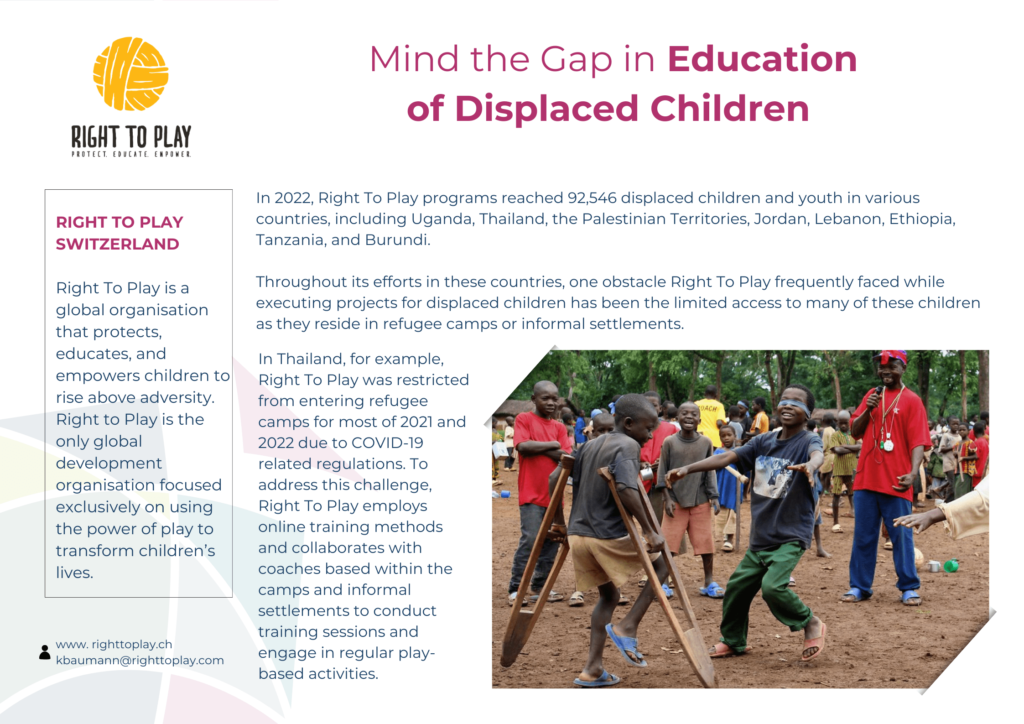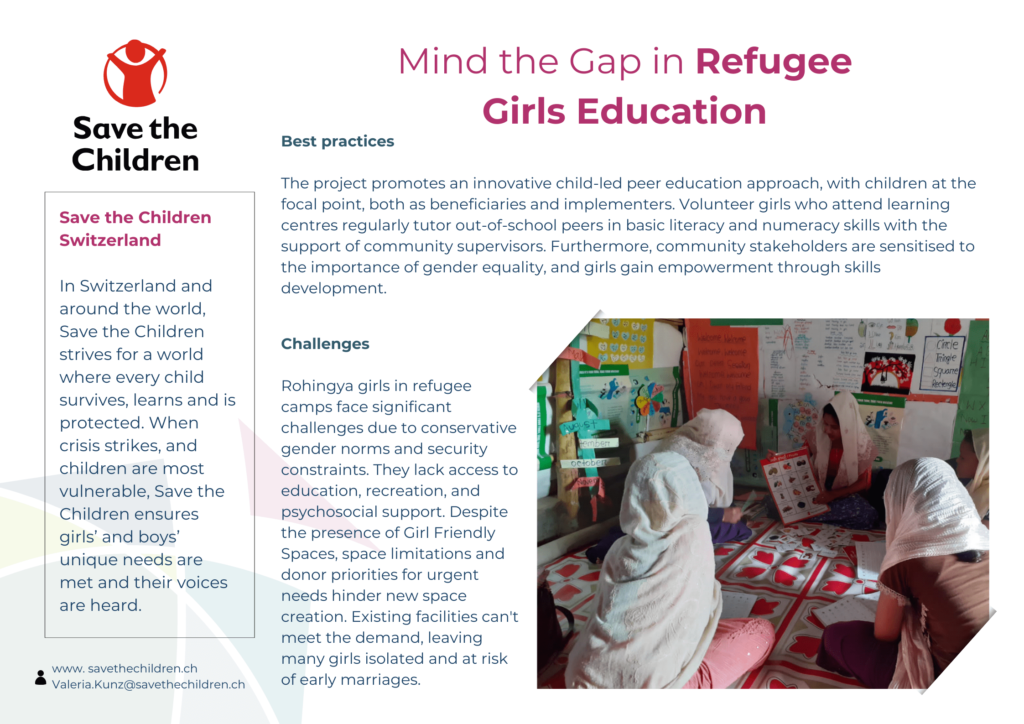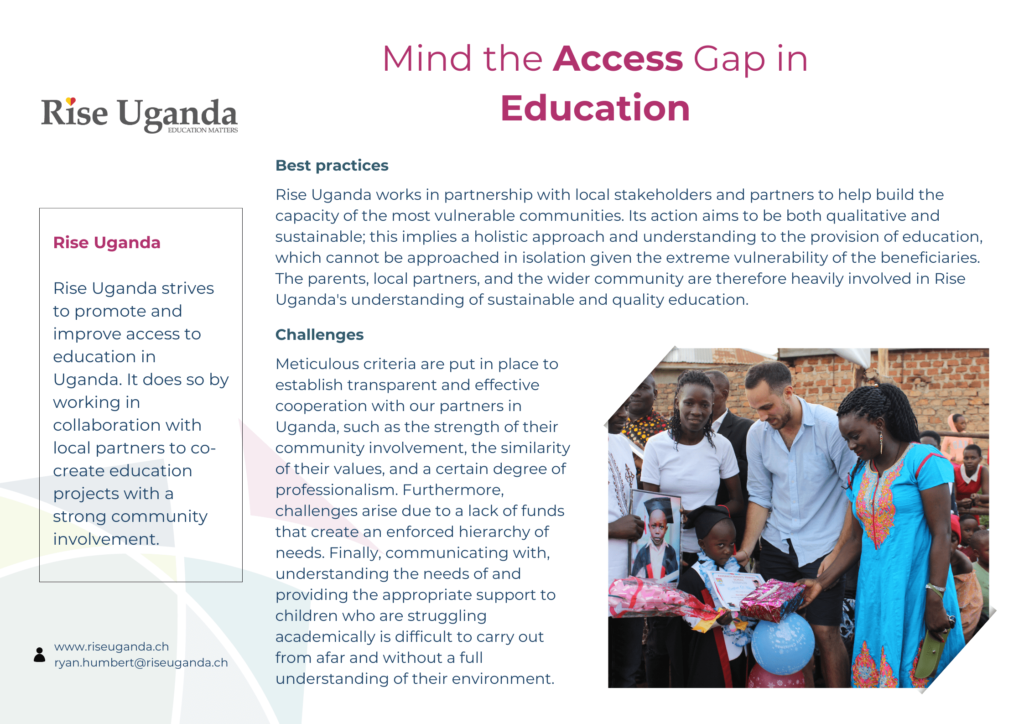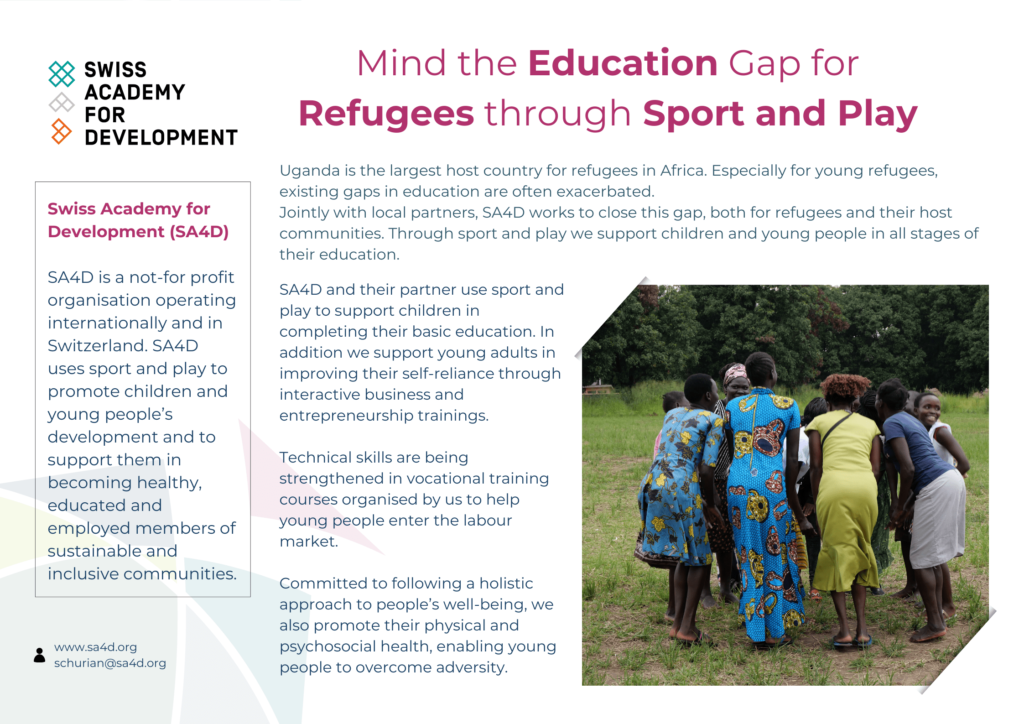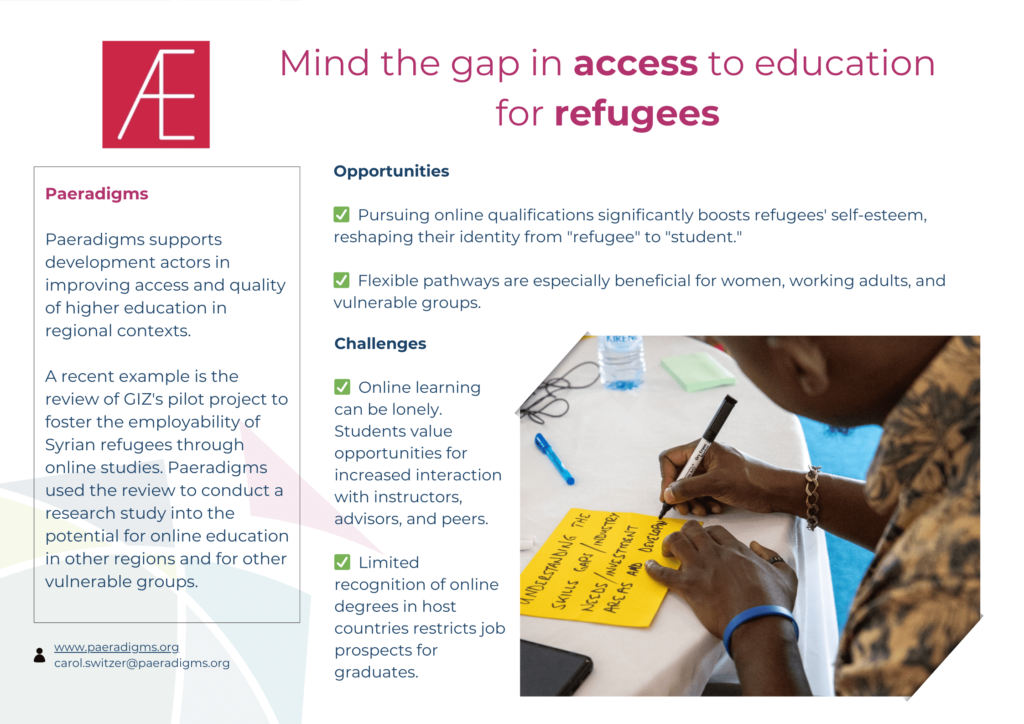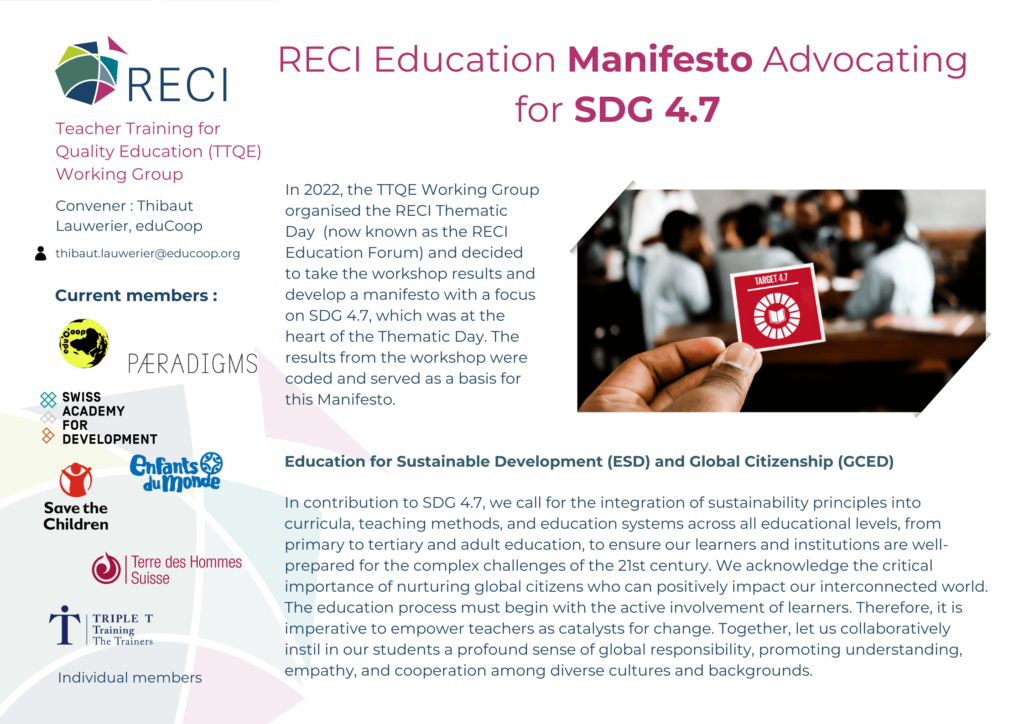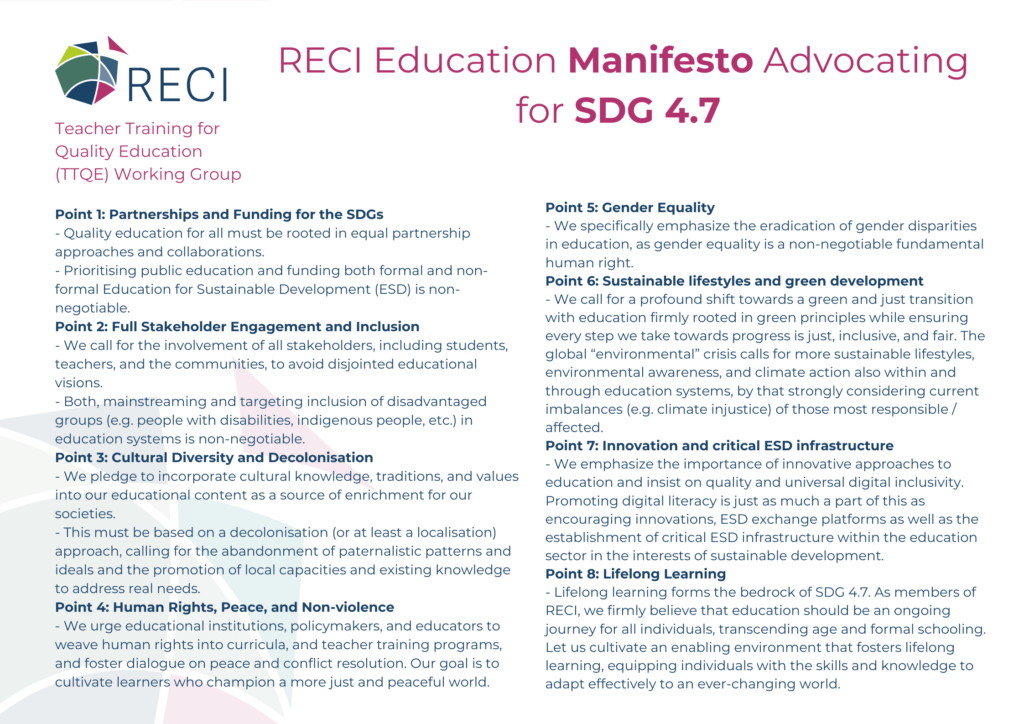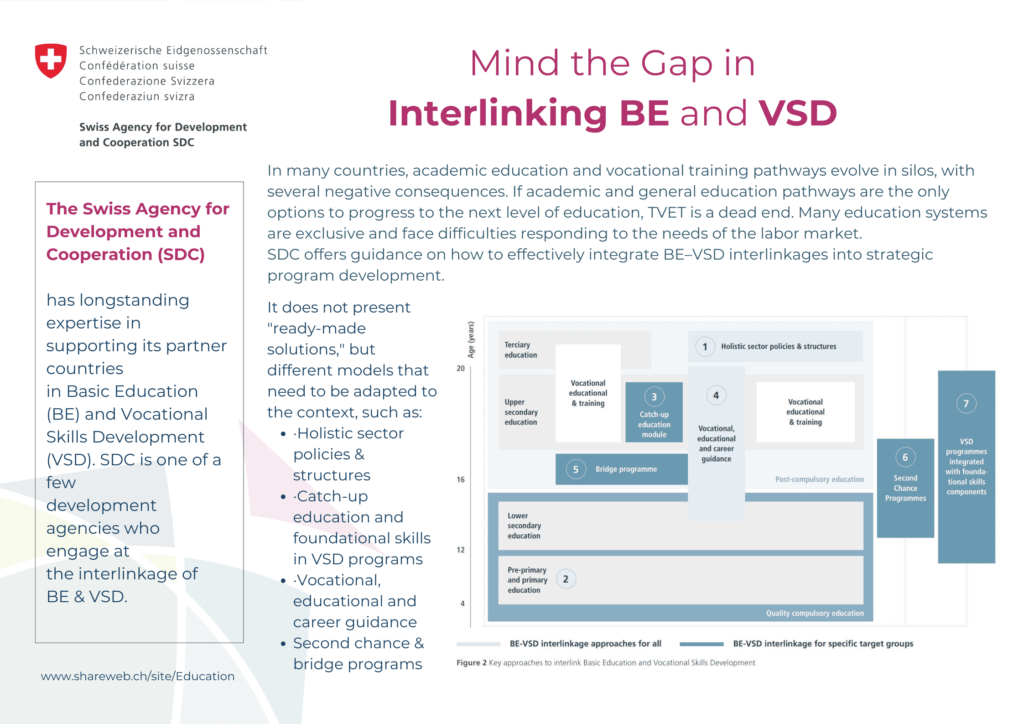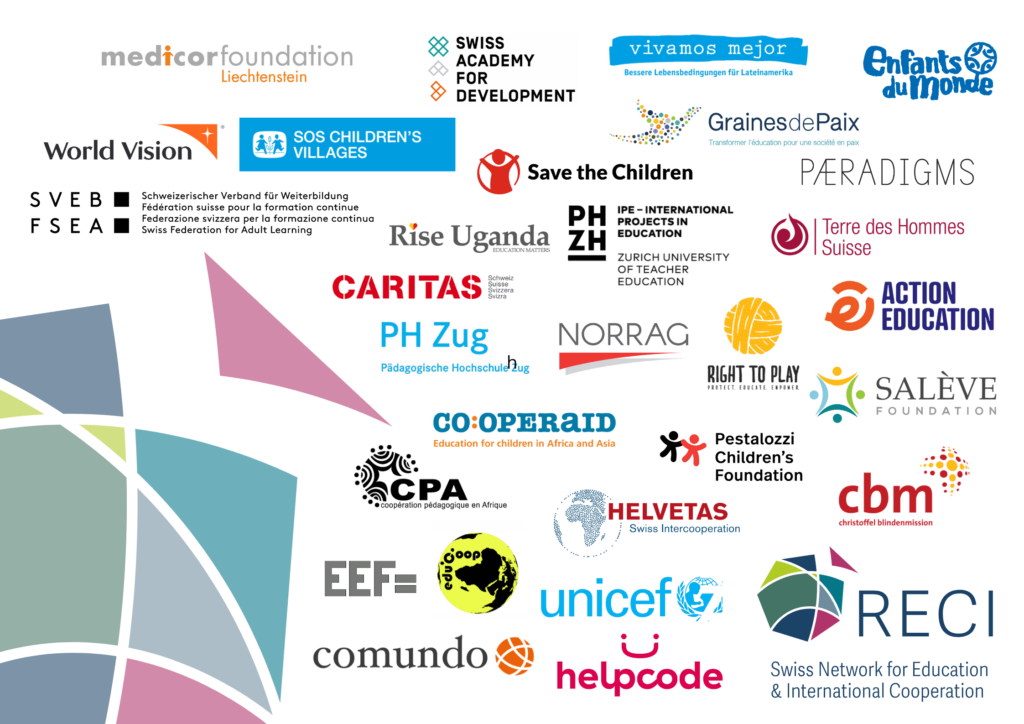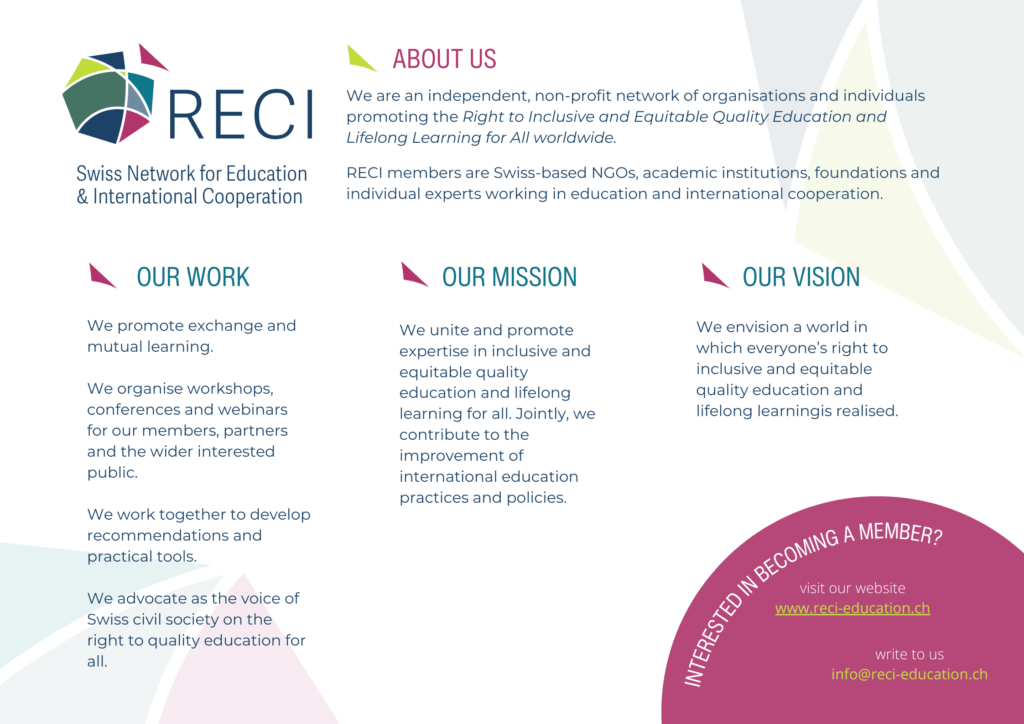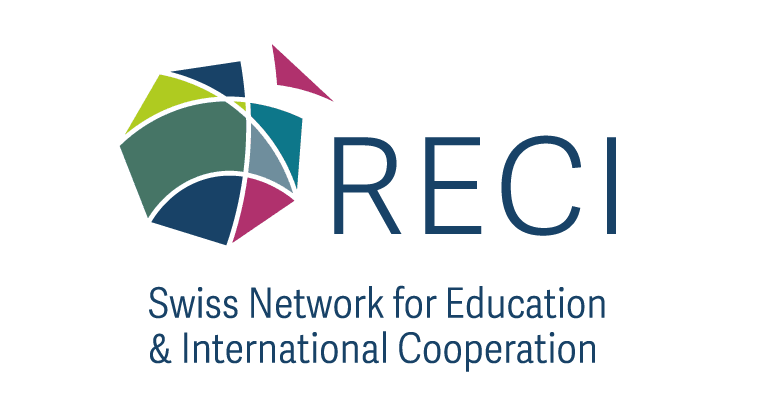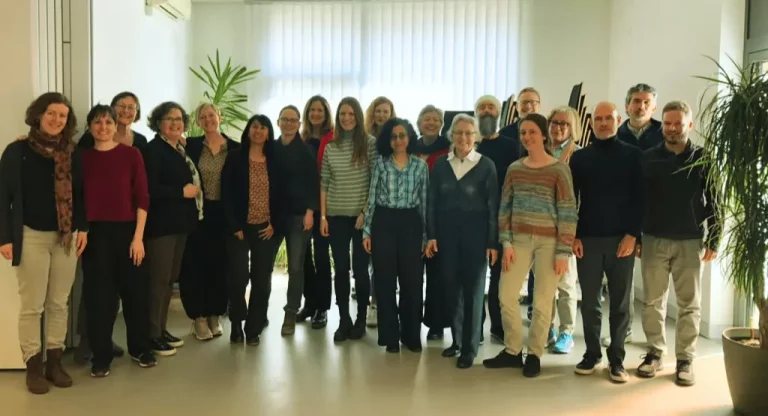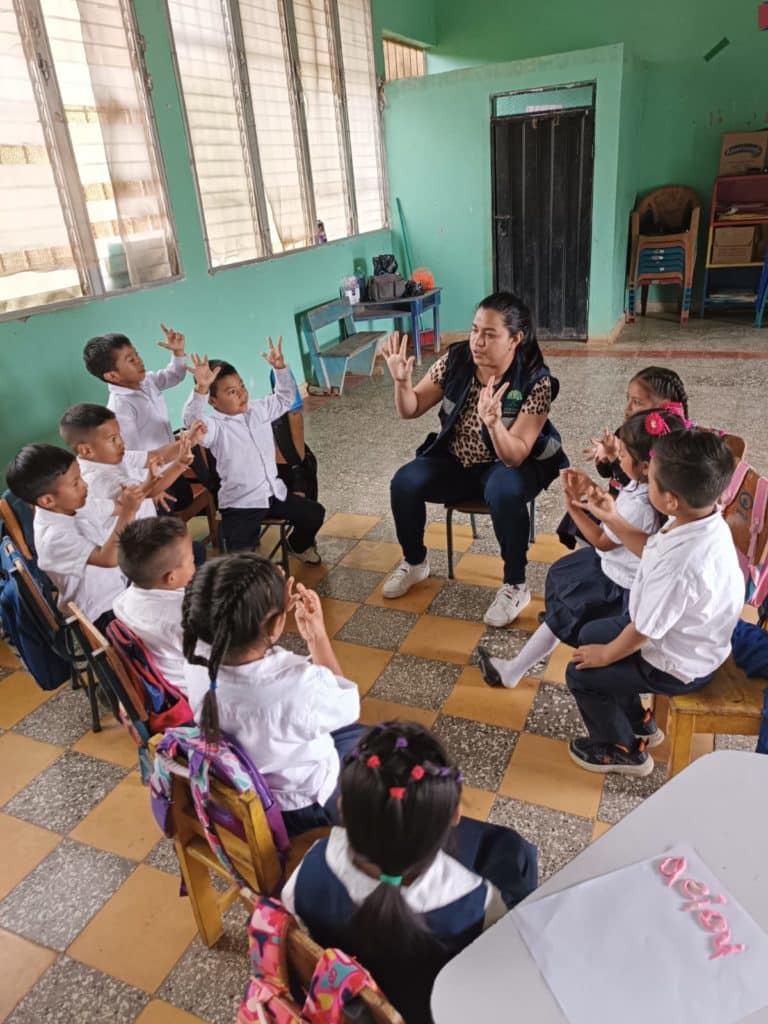RECI Education Forum 2023 "Mind the Gap" Challenges Conventions for Innovation!
The RECI Education Forum 2023 “Mind the Gap”, on November 21, brought together over 100 participants in Bern and online, sparking stimulating discussions on diverse educational gaps.
The engaging panel discussion with five speakers set the stage for the day. The panel united very diverse personal and professional backgrounds: coming from different geographical areas – from Tanzania, Norway, Great Britain, Switzerland to South Africa, panelists were speaking from their personal as well as professional experience in academia, education policy work, advocacy as well as international cooperation projects.
The memorable panel discussion was made possible through the high-quality contributions of our speakers Leon Tikly, Elaine Unterhalter, Christine Semambo Sempebwa, Nicole Sourt Sánchez, and Nina Luhr, as well as the excellent moderation by Nina Volles and Beatrice Schulter.
The interventions highlighted the importance of decolonising education and Switzerland’s historical role in segregated education, emphasising the need to understand and challenge these inherited structures. The discussion also explored the complexities of girls’ education, particularly in sub-Saharan Africa, highlighting challenges related to cultural norms and economic disparities. The debates emphasised the importance of making education relevant beyond the job market and concluded with calls for ongoing collaboration to address global social and environmental justice issues, emphasising the importance of coordinating knowledge without causing harm.
Nicole Sourt (Sensability – Expertise for Inclusion, Switzerland) initiated the debate and highlighted that 20% of the Swiss population experiences disabilities. She shared her personal experience as a visually impaired child in a school for visually impaired individuals, emphasizing the challenges of social inclusion.
Christine Semambo Sempebwa (Forum African Women Educationalists, FAWE, Uganda) discussed similar issues in sub-Saharan Africa, emphasizing the lack of facilities and assistive devices, especially in rural areas. Christine focused on the challenges faced by girls with disabilities and underscored that cultural norms still favour boys in education.
Prof, Dr. Leon Tickly (University of Bristol) emphasised the challenges of implementing knowledge co-creation, highlighting practical difficulties and power imbalances. He stressed the need to reassess higher education curricula for relevance and to connect research to the empowerment of the concerned communities.
Nina Luhr’s (SAIH, Norway) points underscored the need for a critical examination of colonial legacies, a proactive approach to decolonisation, and a questioning of existing power structures in defining education and research norms.
Prof. Dr. Elaine Unterhalter (University College London) questioned the accidental or intentional nature of the educational gap, suggesting links to deep inequalities based on legacies of colonialism and class disparities. She urged consideration of various gap types and emphasised the importance of understanding political, economic, and social forces behind these disparities. Elaine stressed the need for analytical precision in defining and addressing the problem, especially in discussions on inclusion and decolonisation.
Workshop Reports
After the thought-provoking debate we moved on to the interactive part of the Forum. Participants received the Open Space methodology with enthusiasm and curiosity and they organised 14 workshops on those topics that were most relevant to them.
Closing Session
During the closing session, speakers and participants shared reflections on the day’s discussions. Many highlighted the richness of the Open Space Methodology, allowing for a diverse range of perspectives. And many emphasised the need to continue mutual learning and discussing beyond thise event.
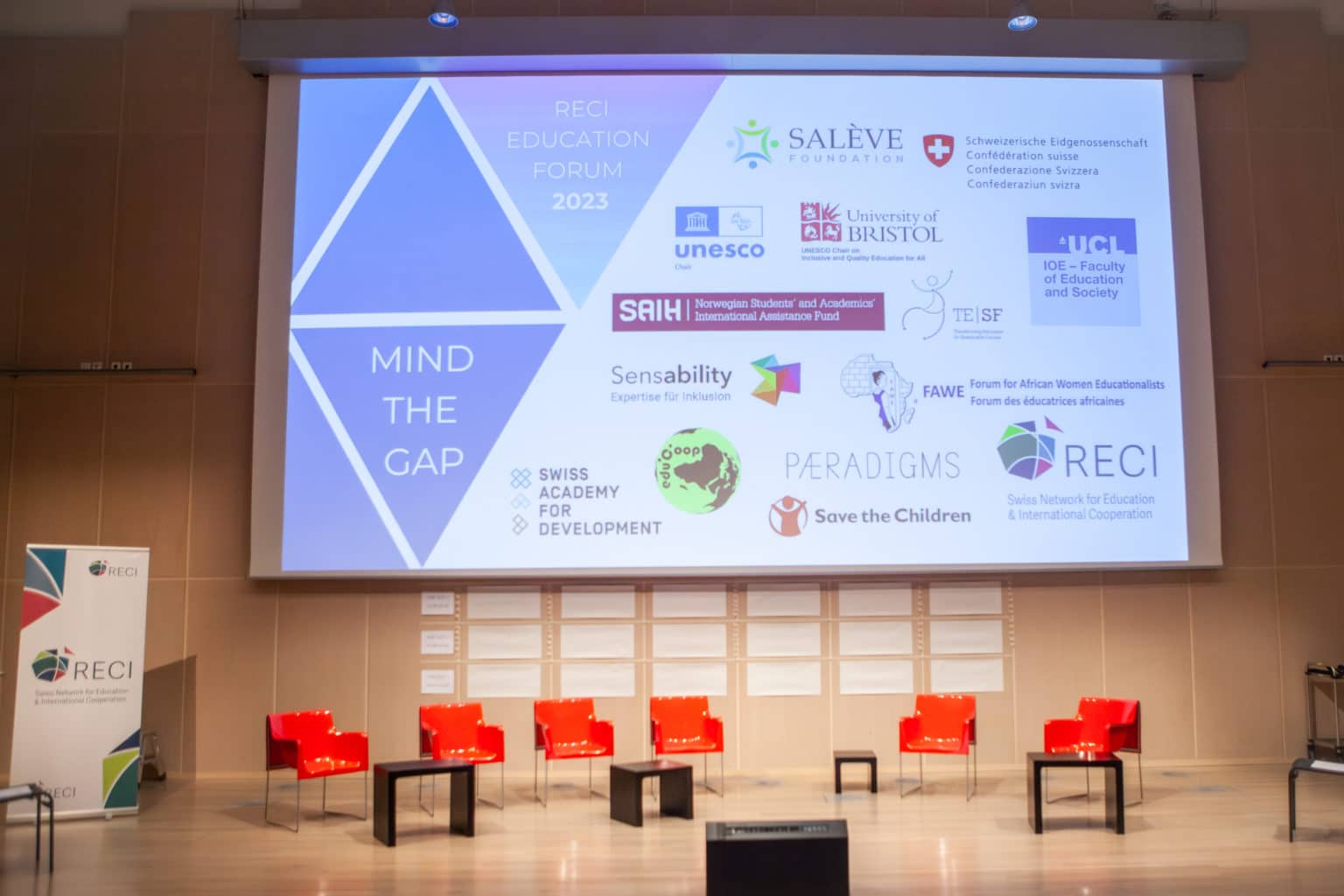
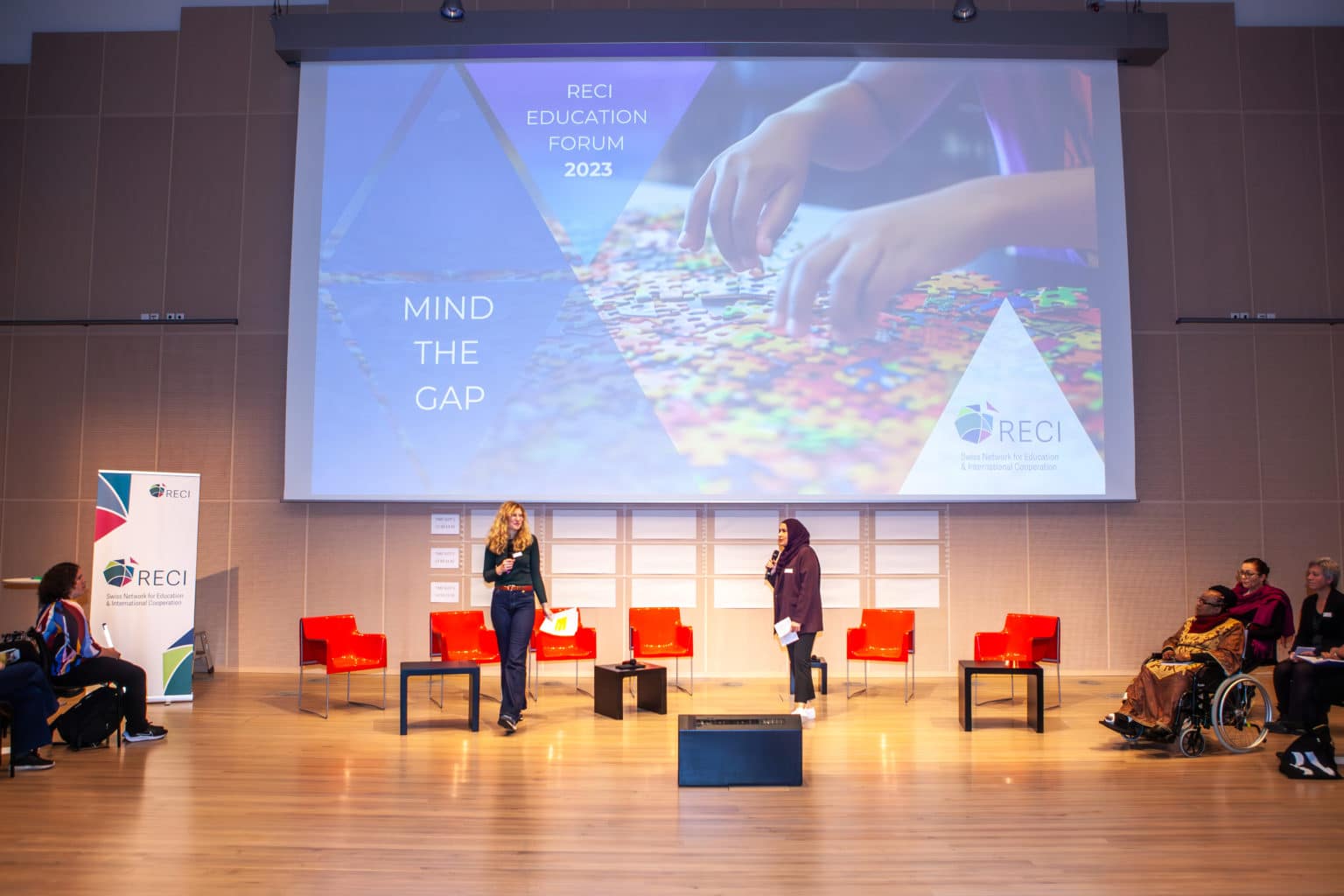
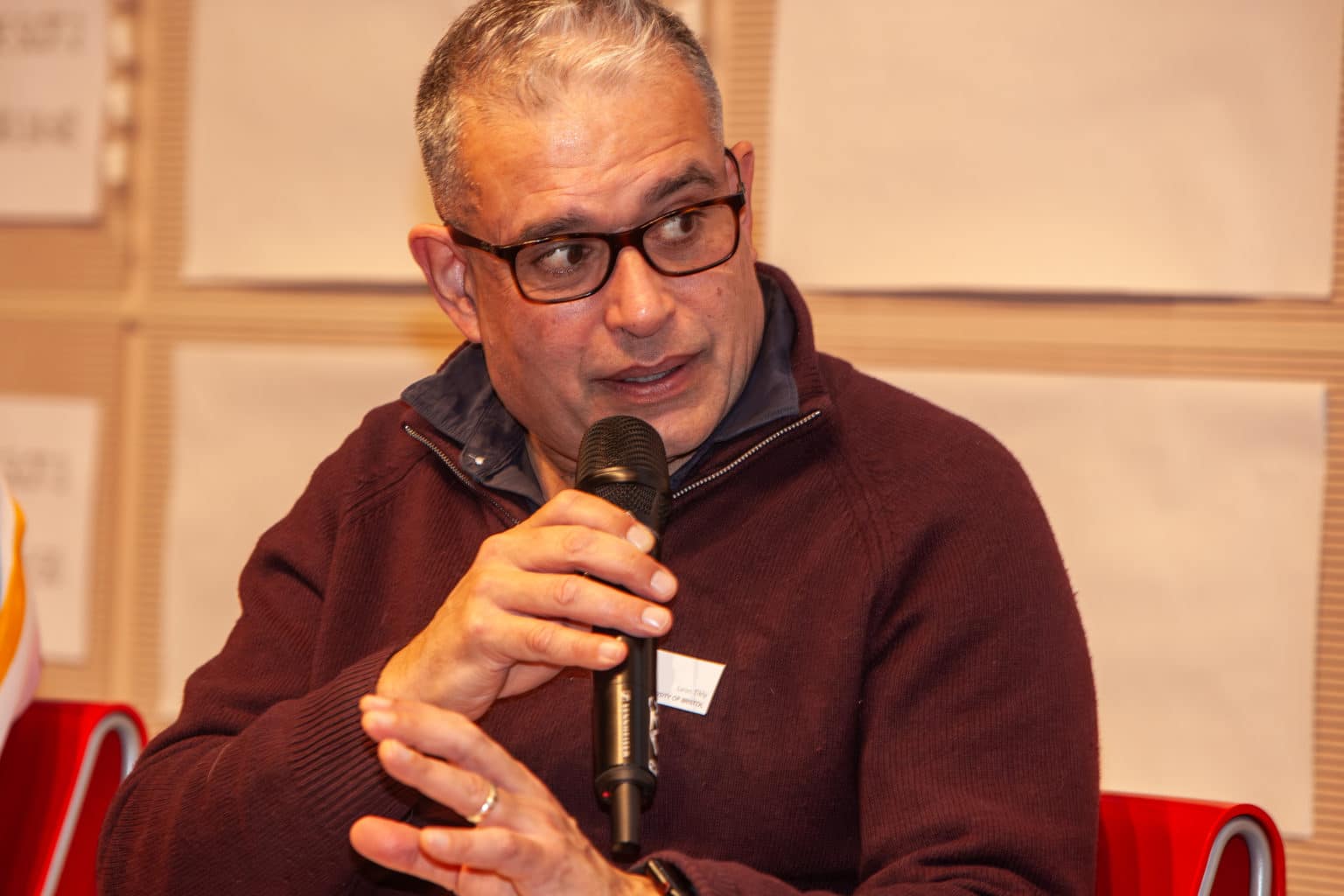
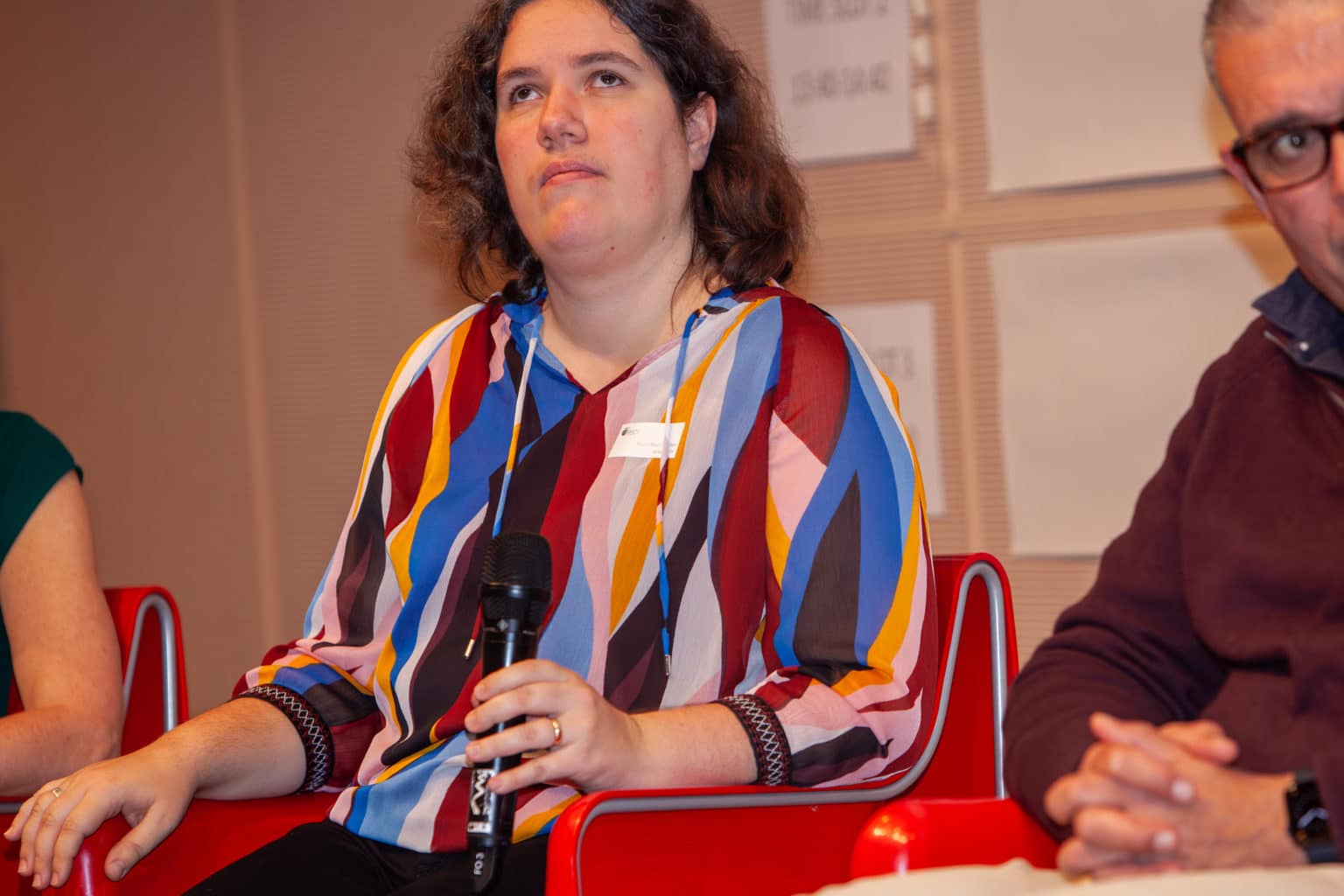

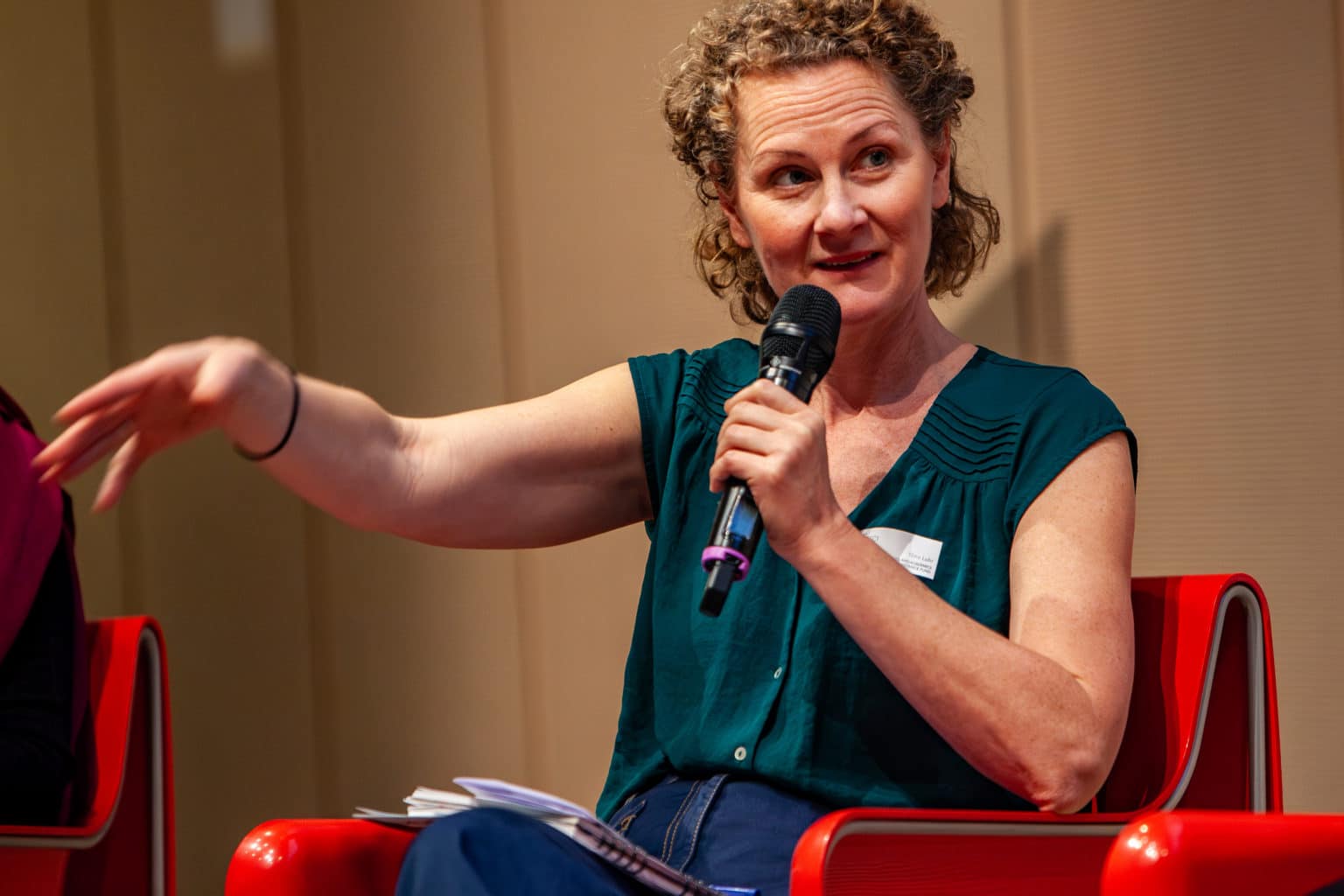
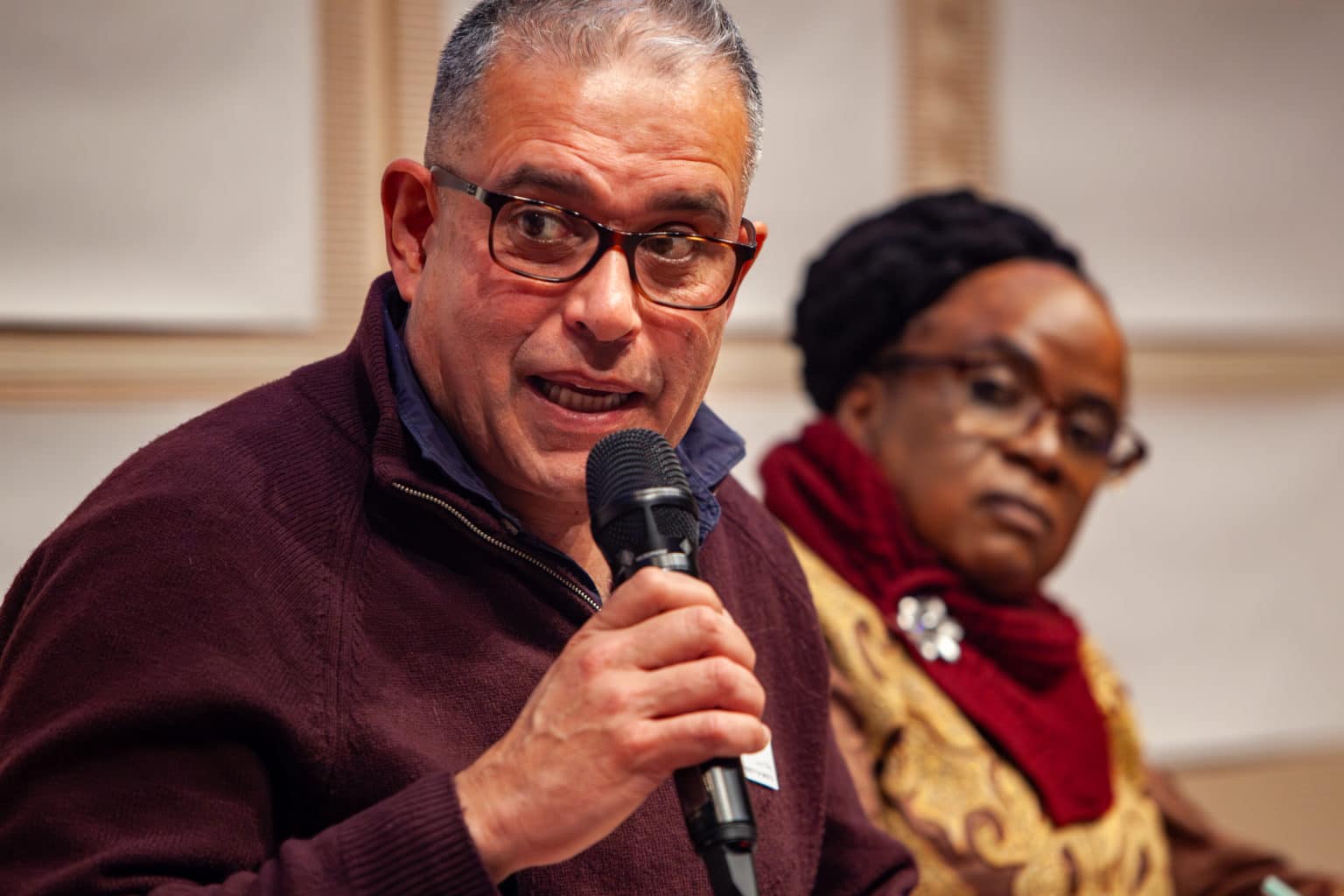
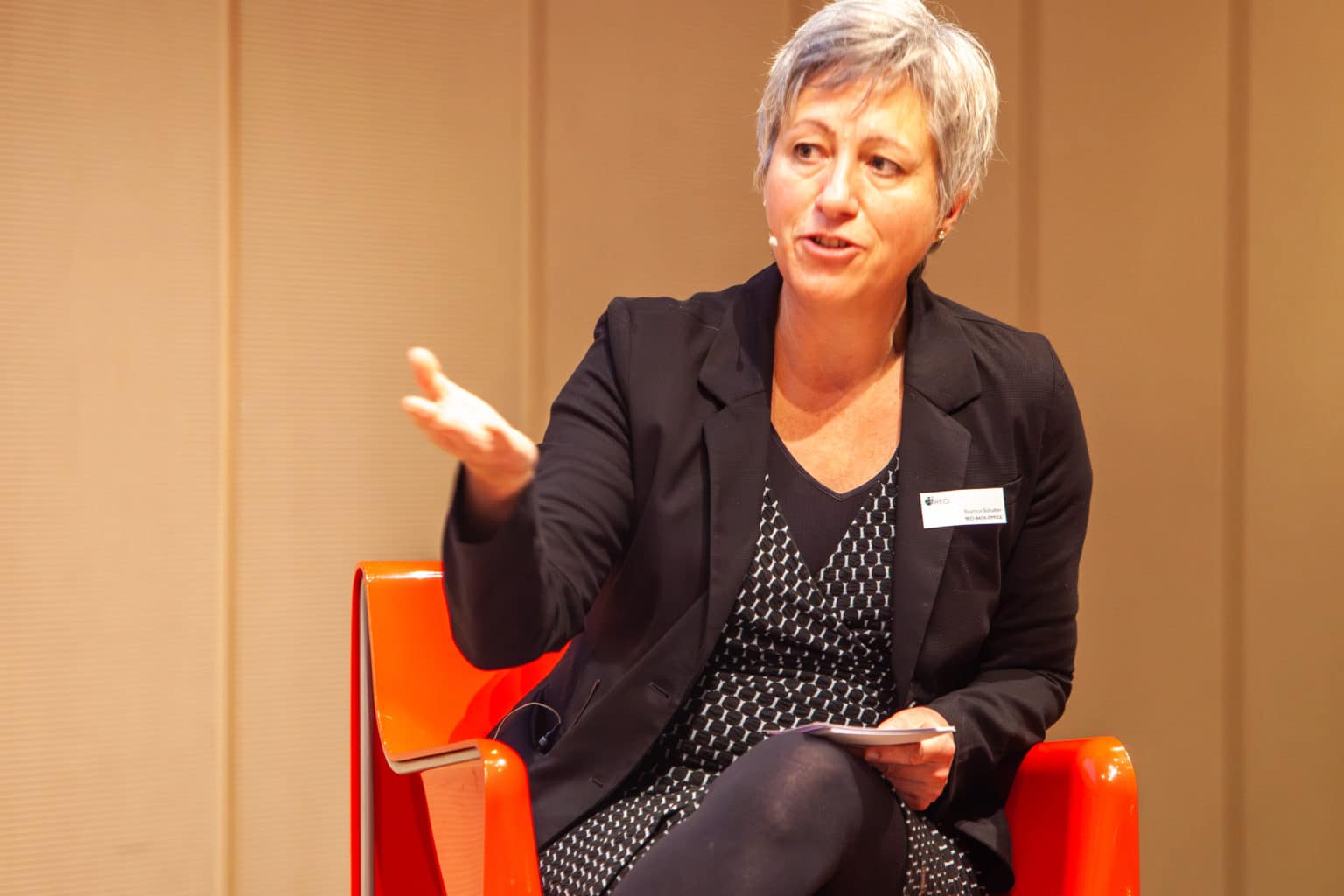
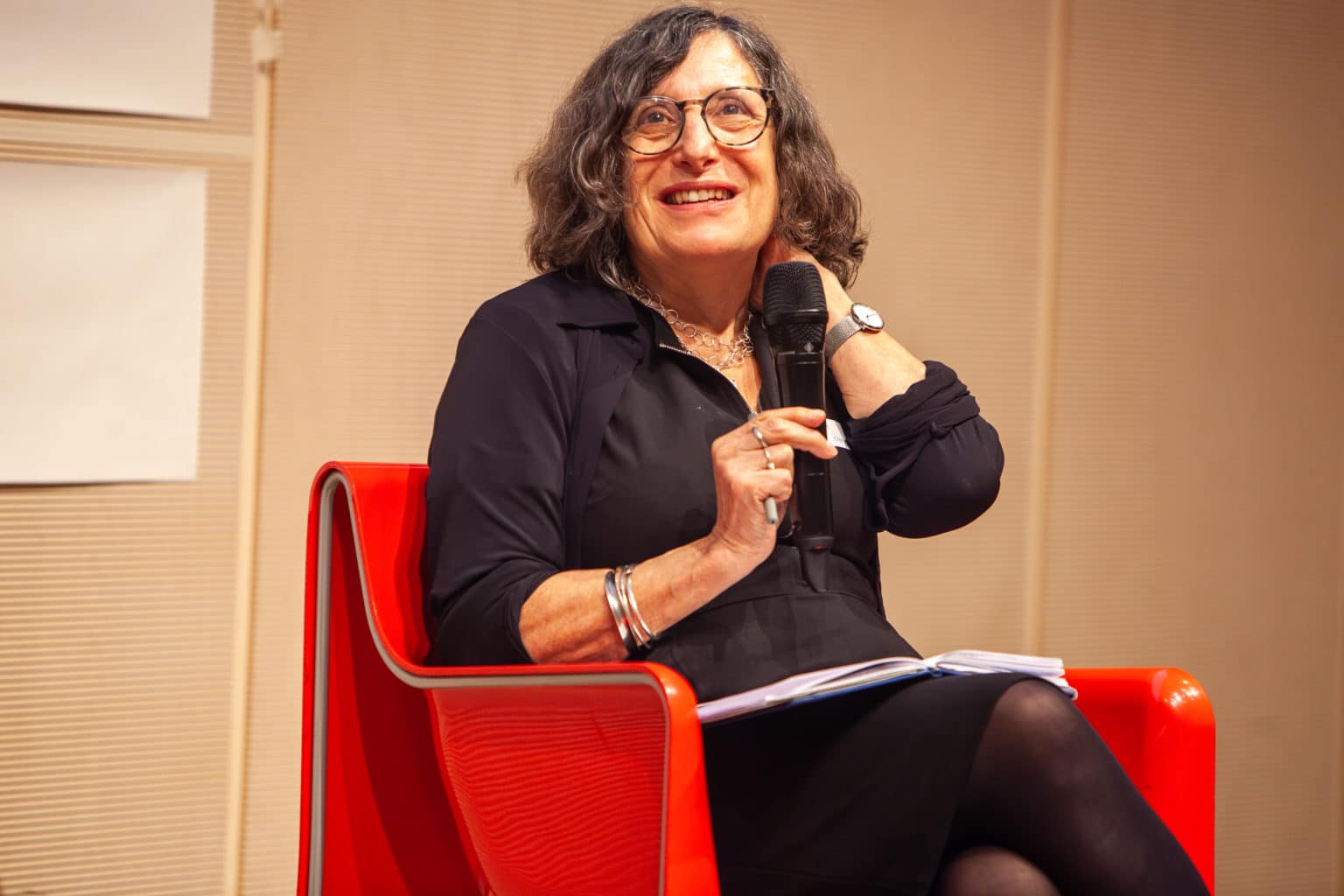
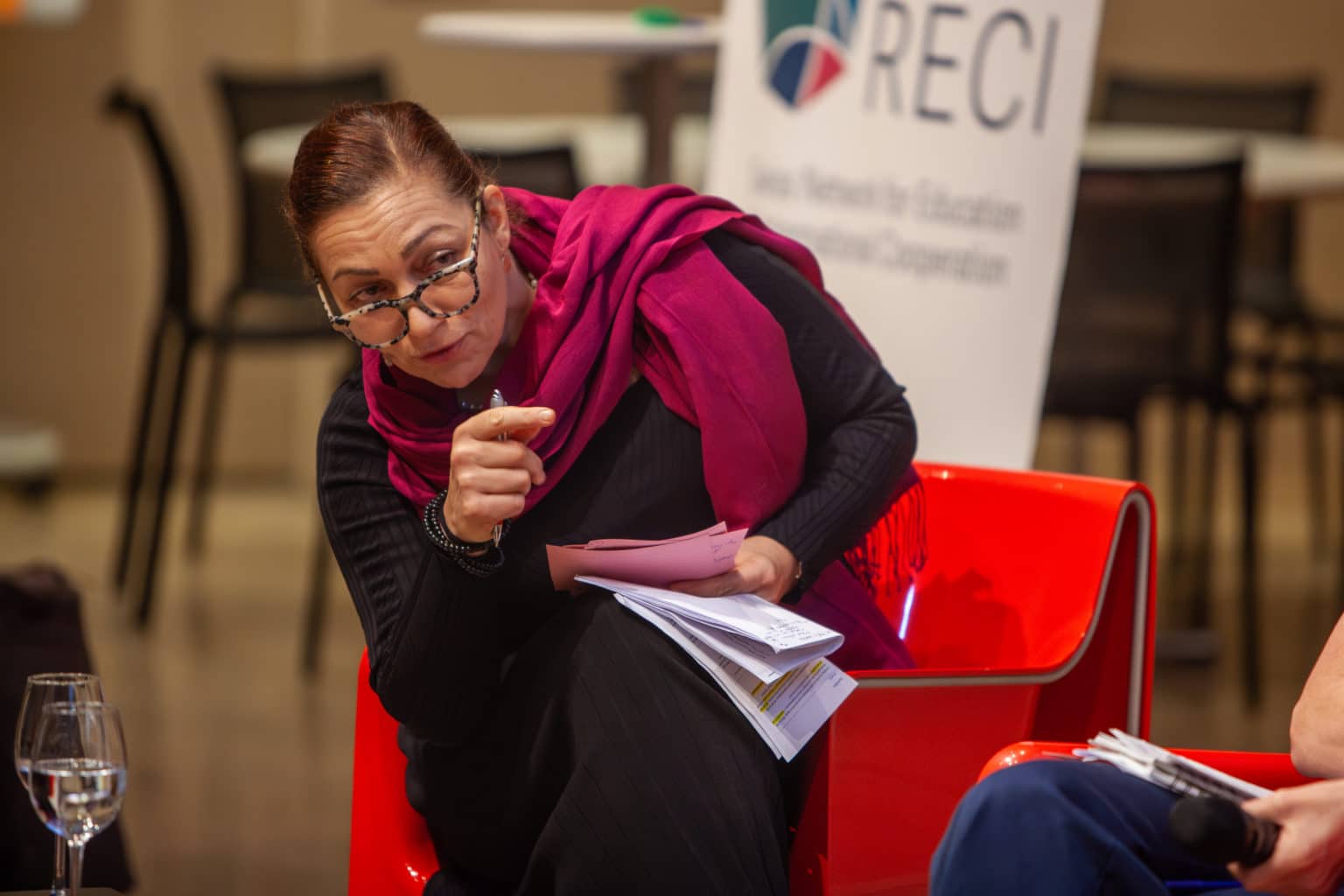
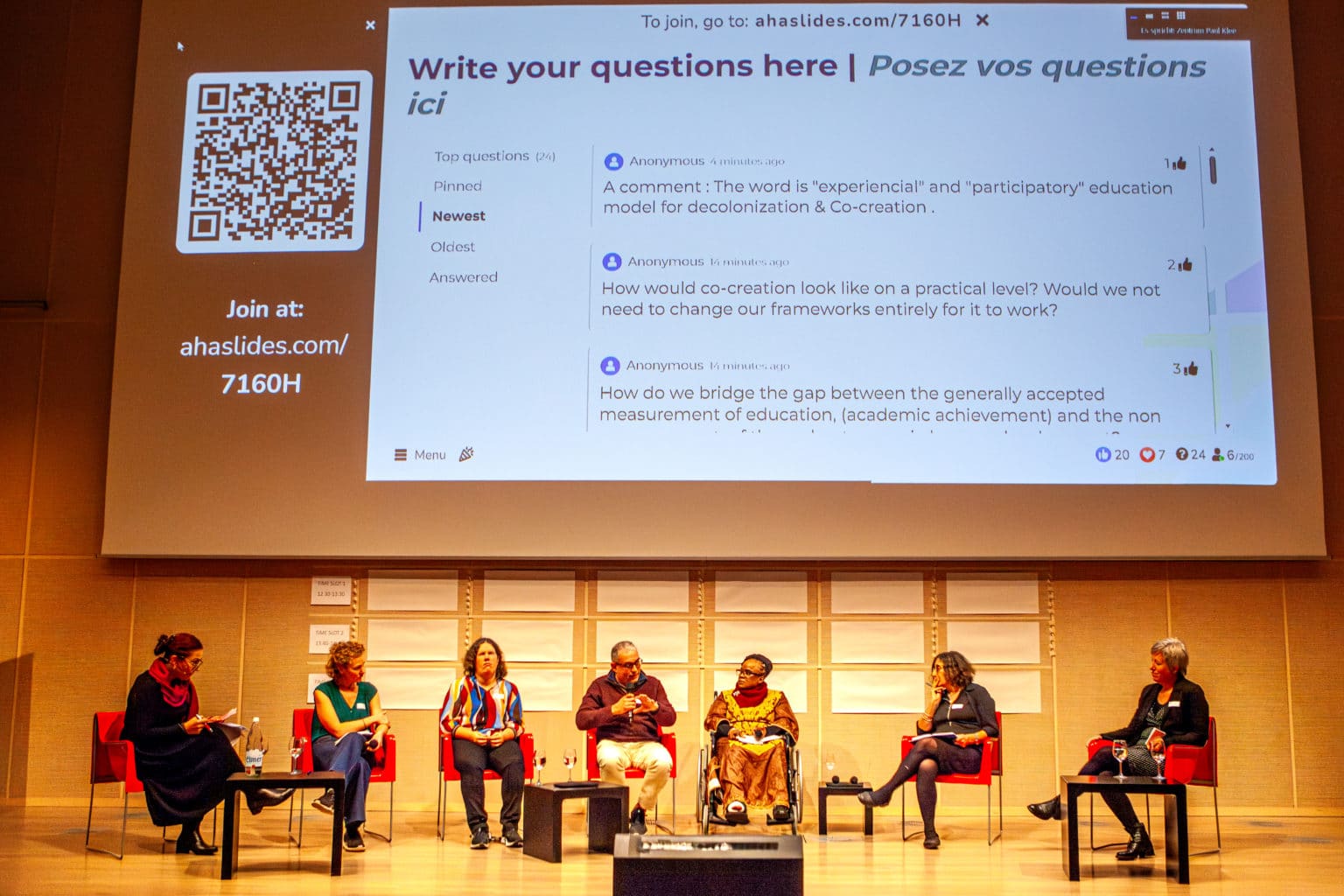
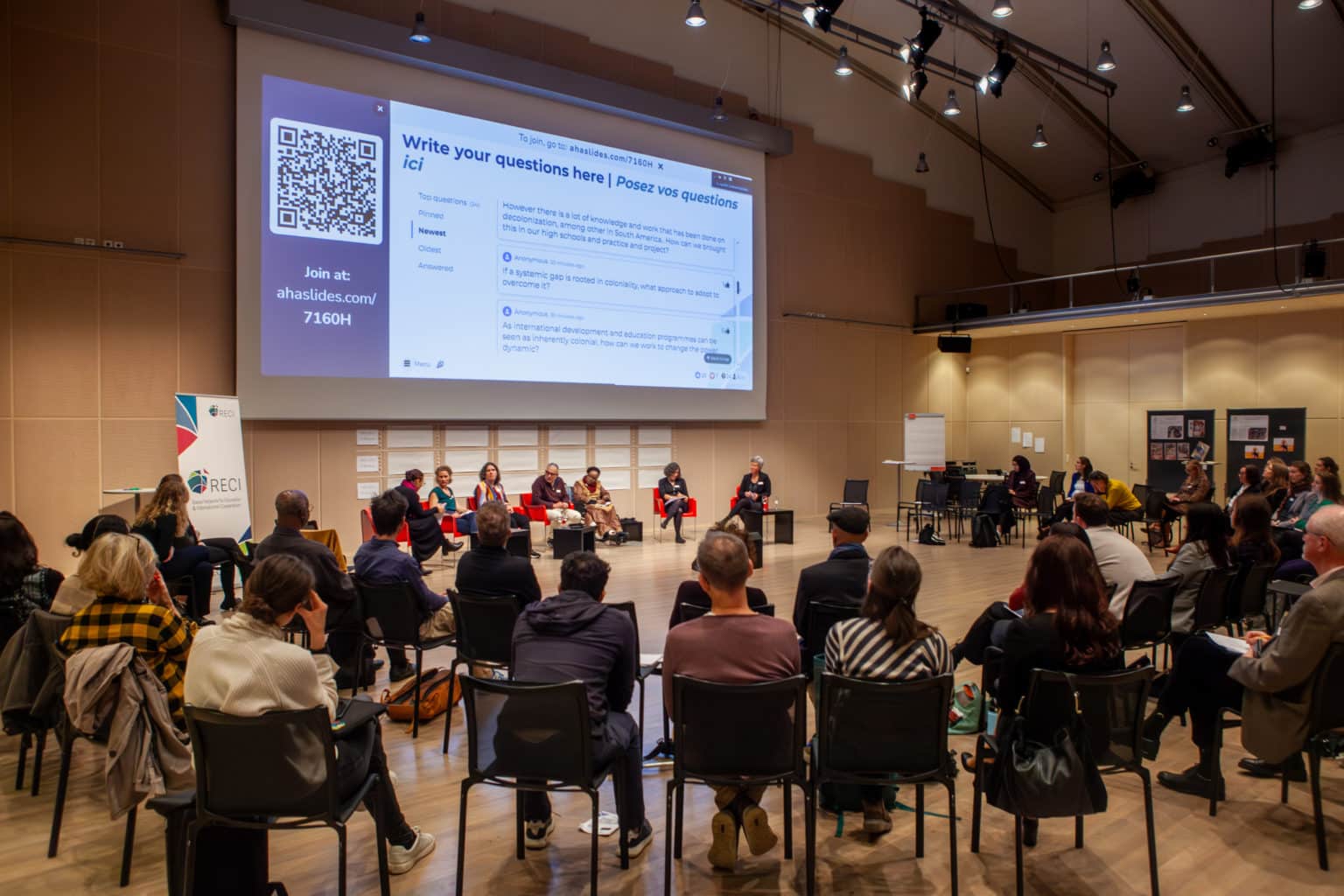
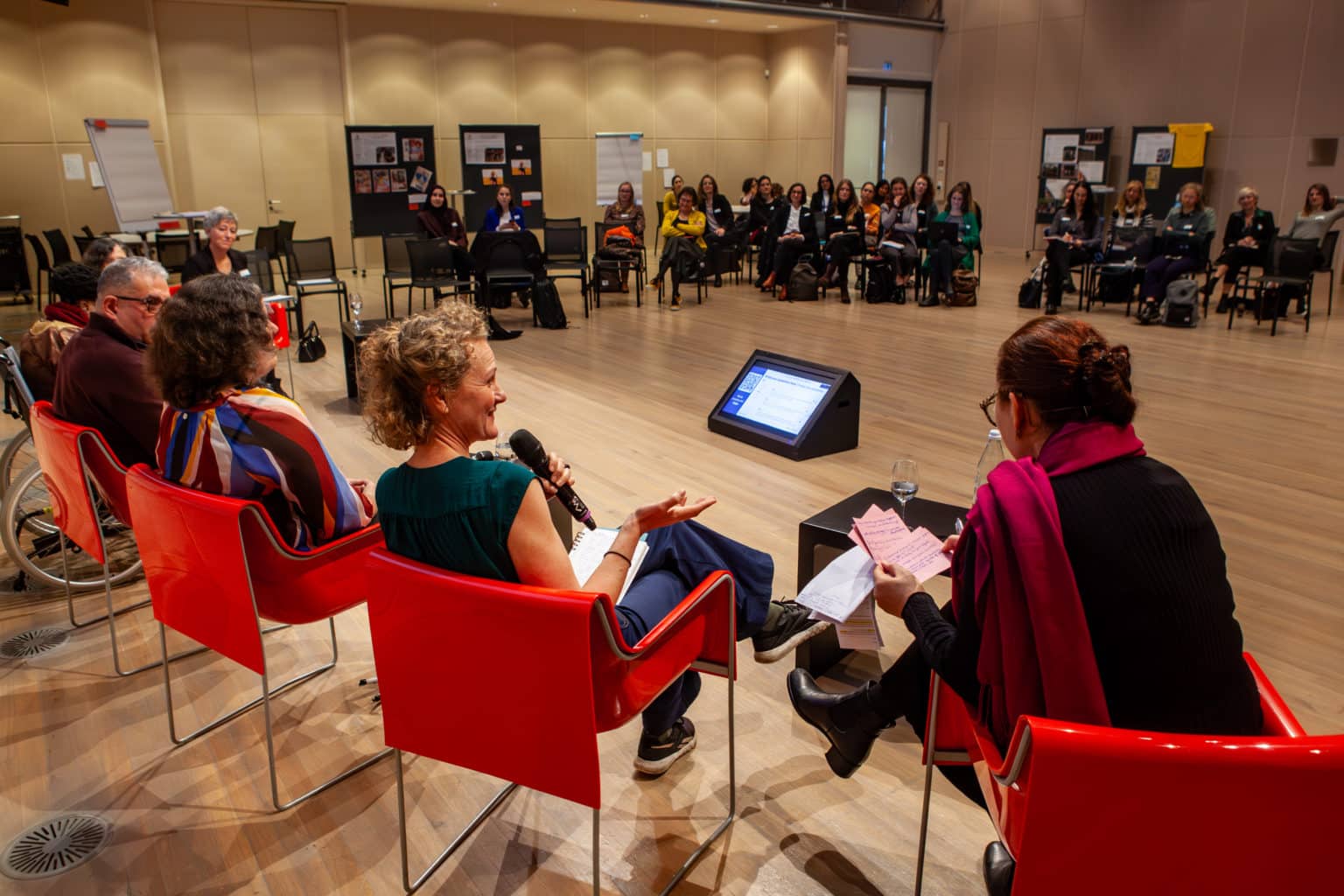
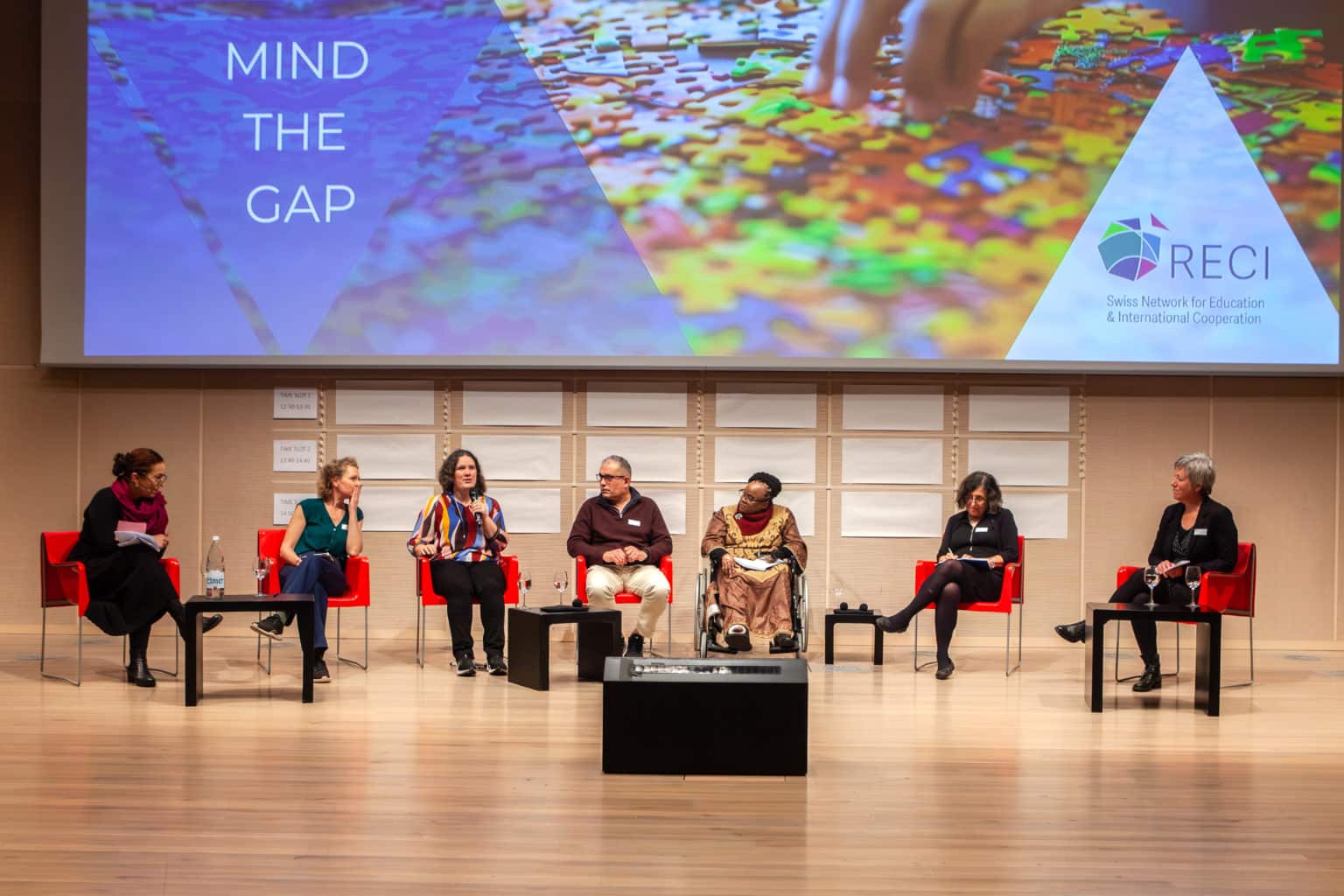
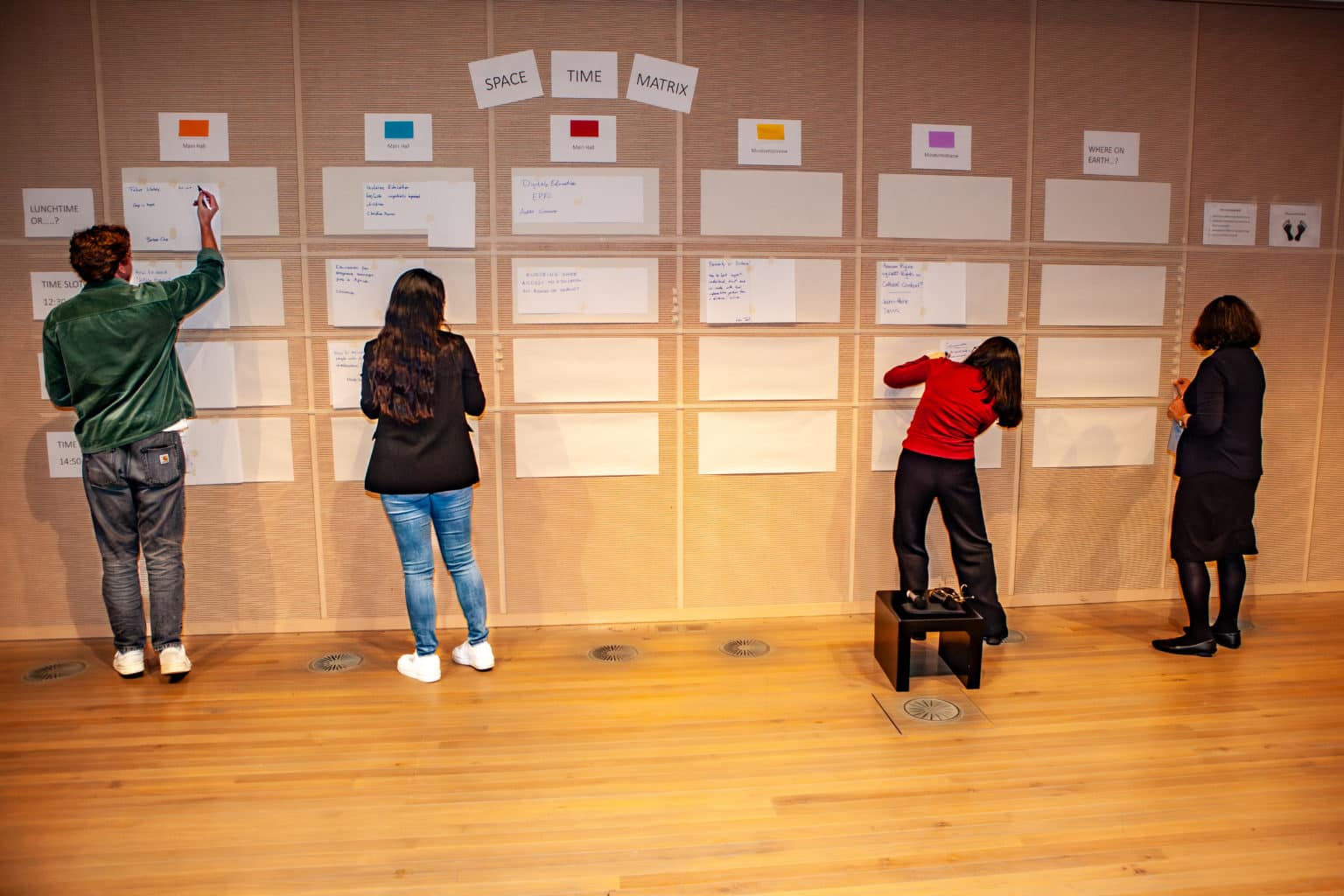
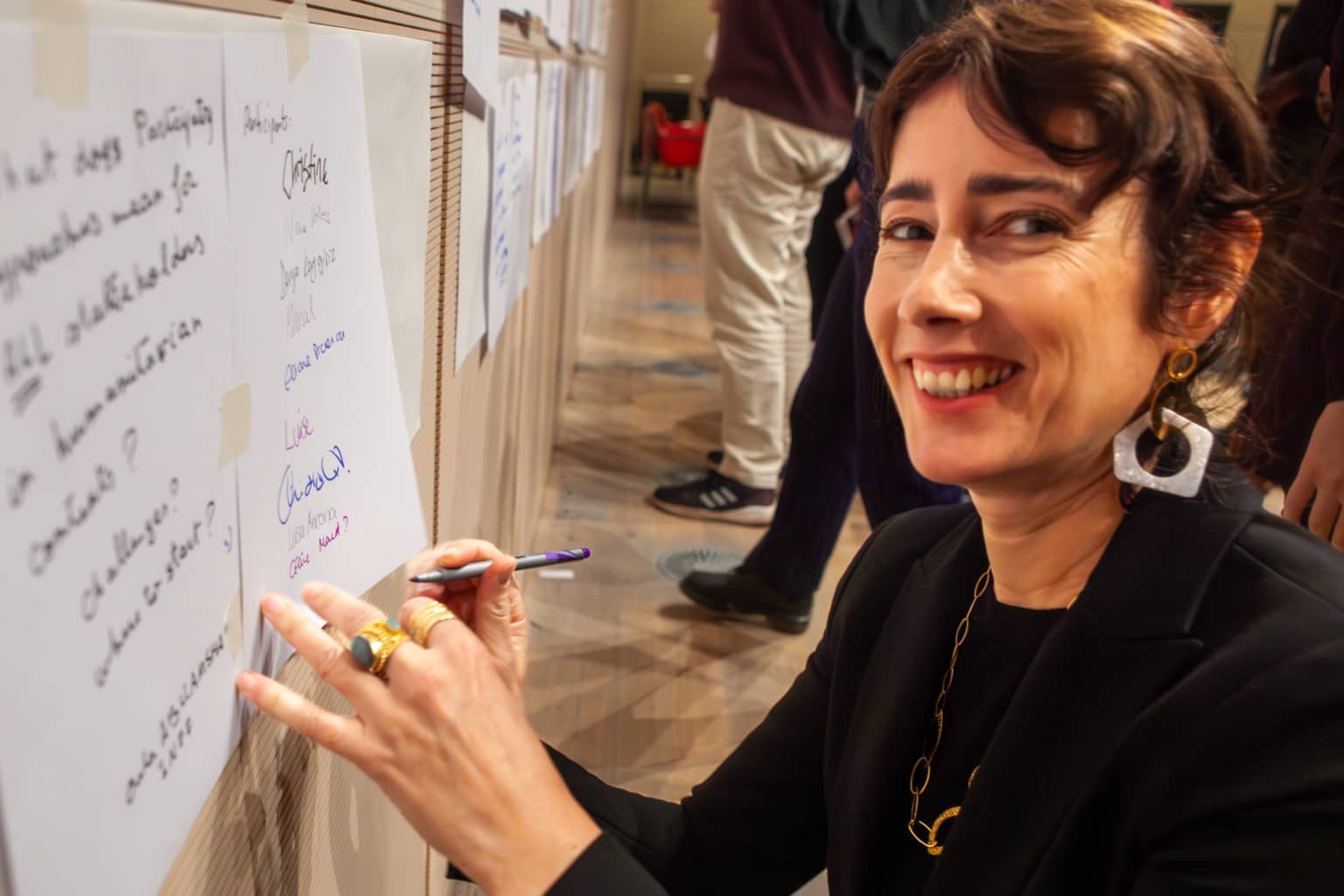
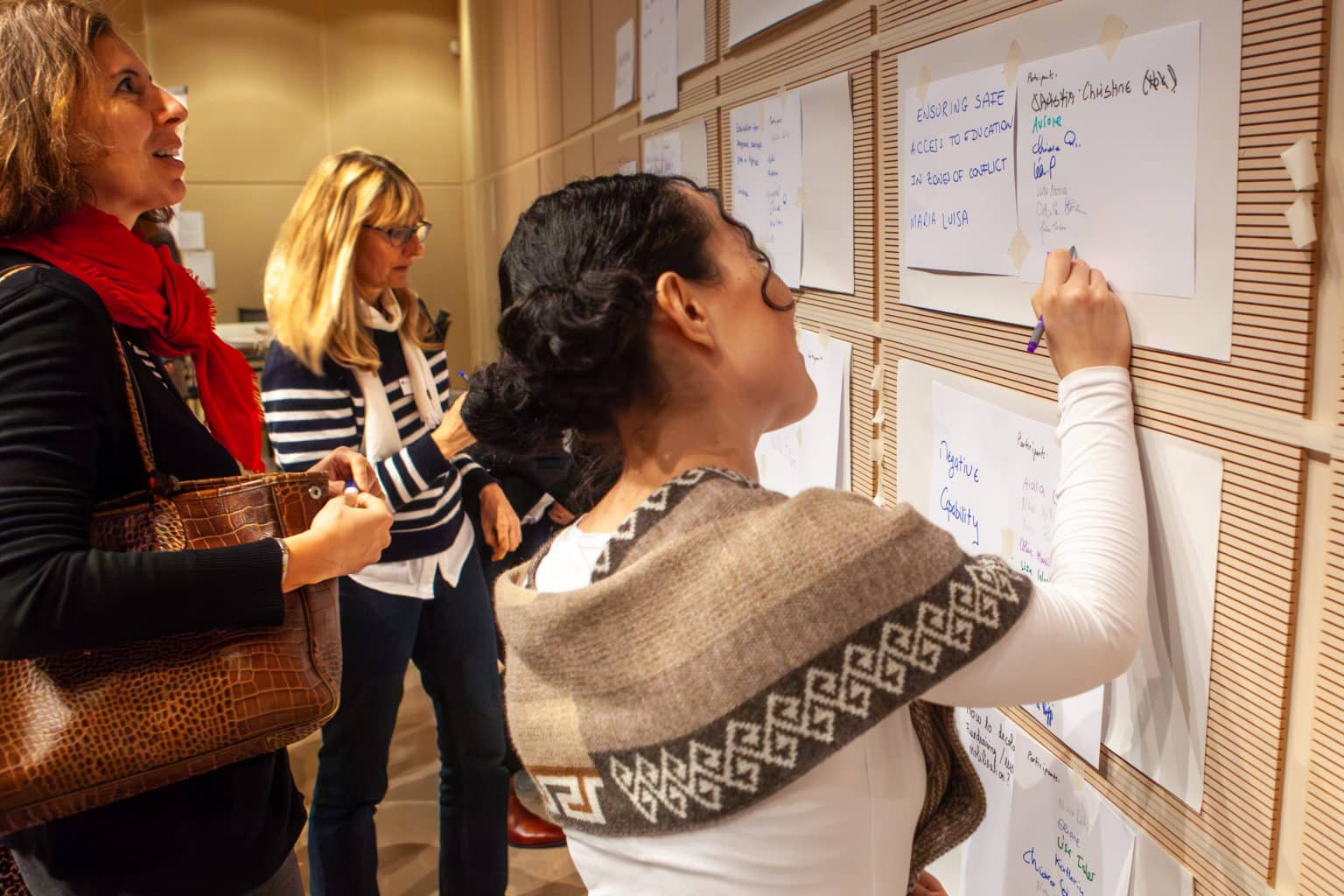
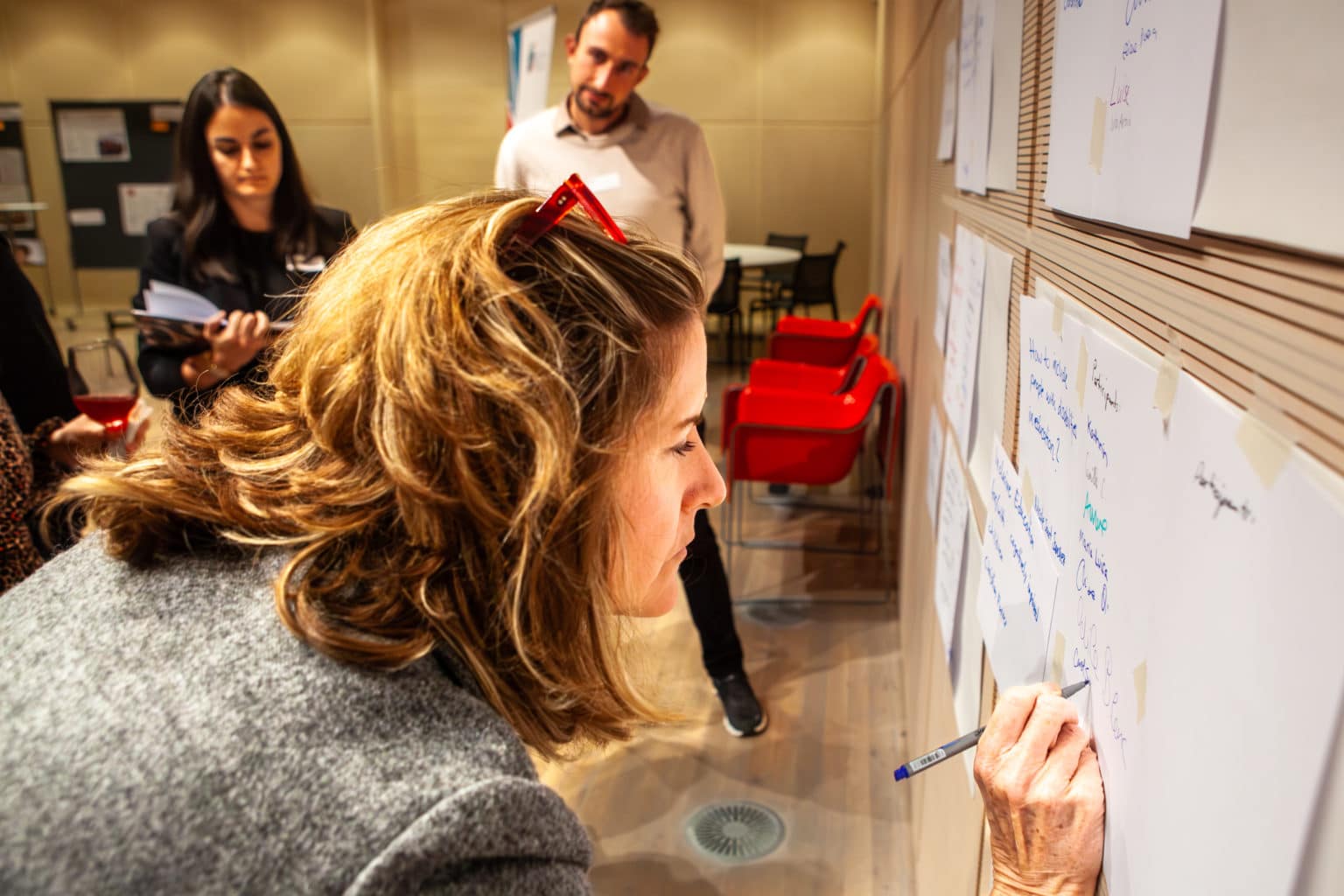
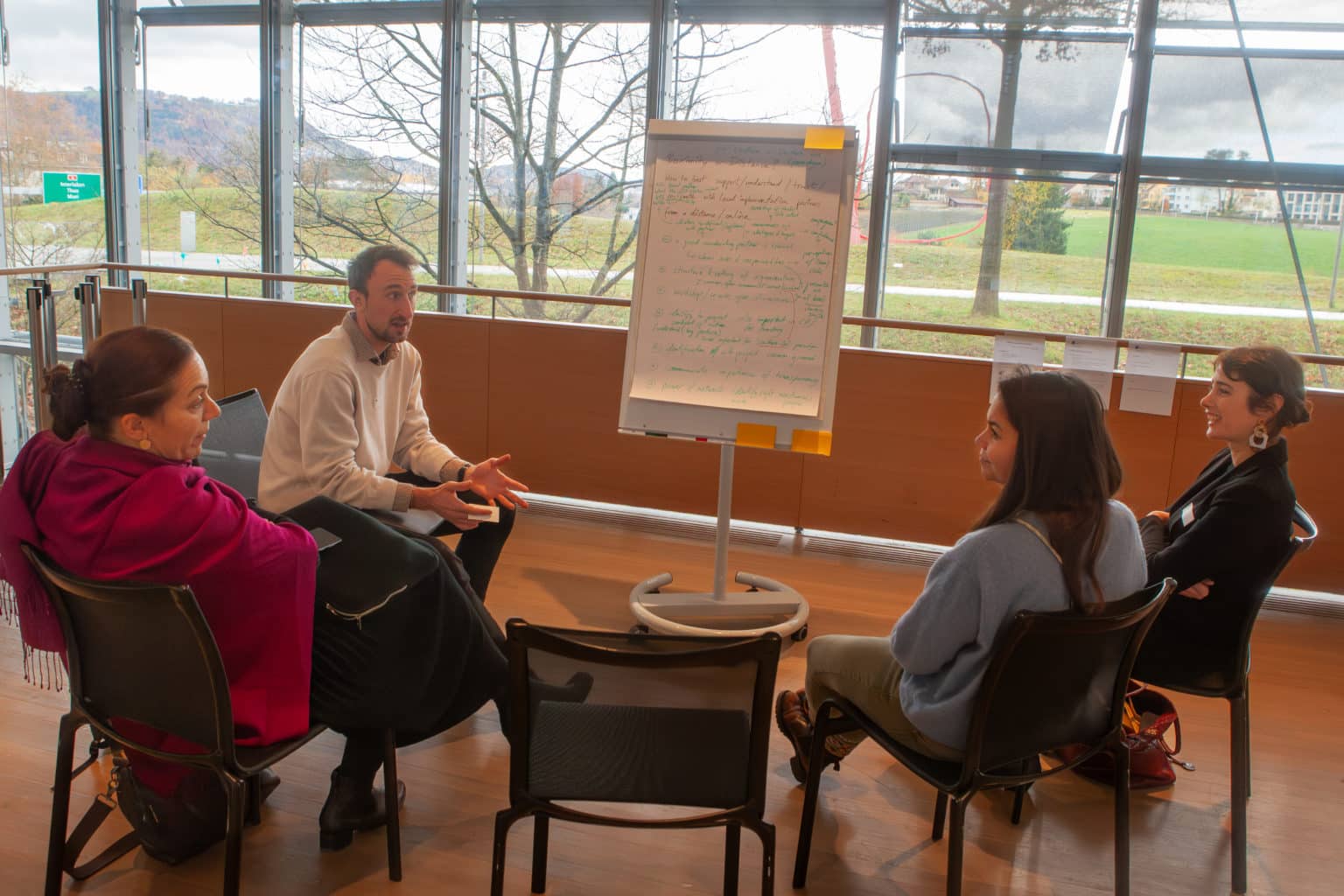
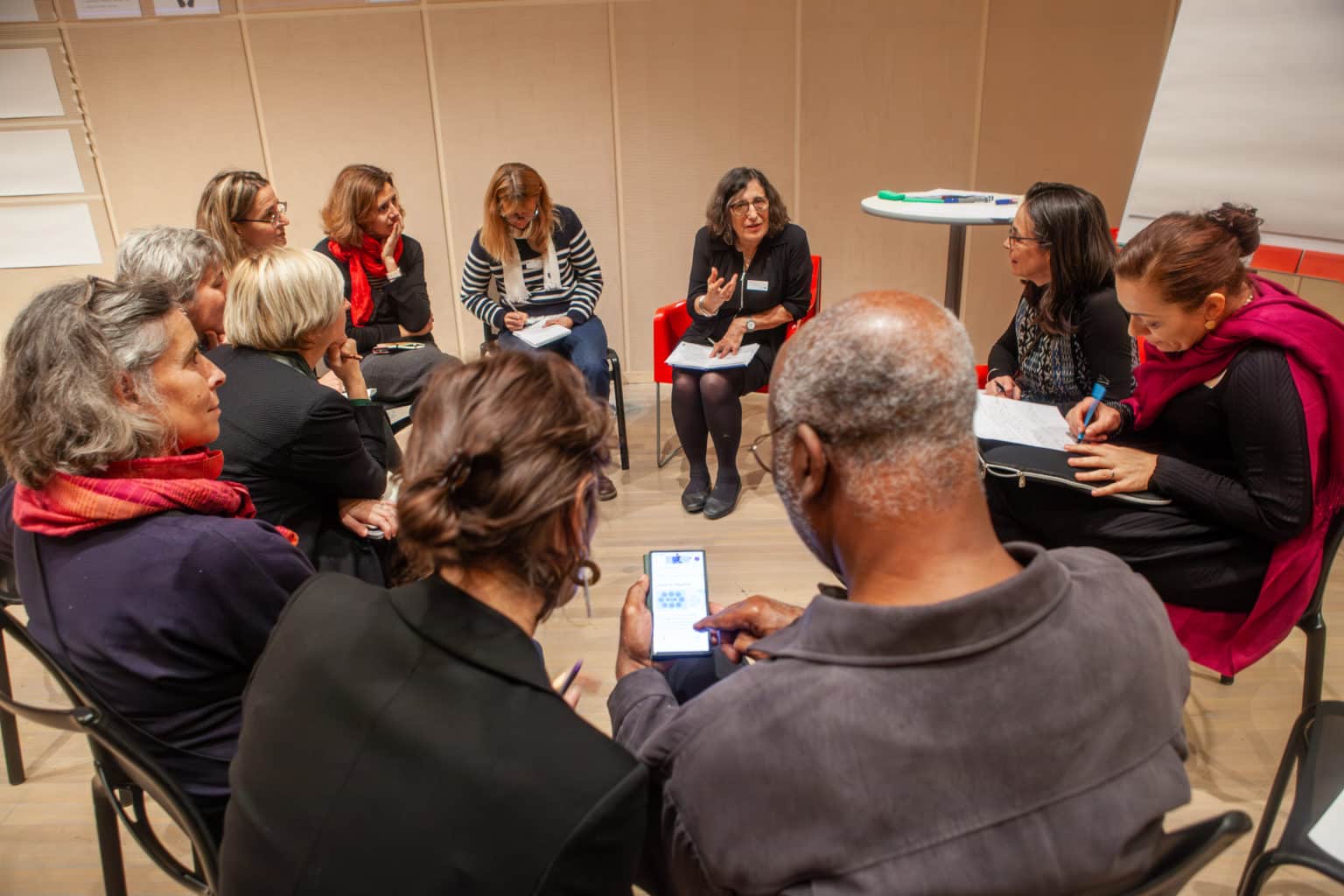
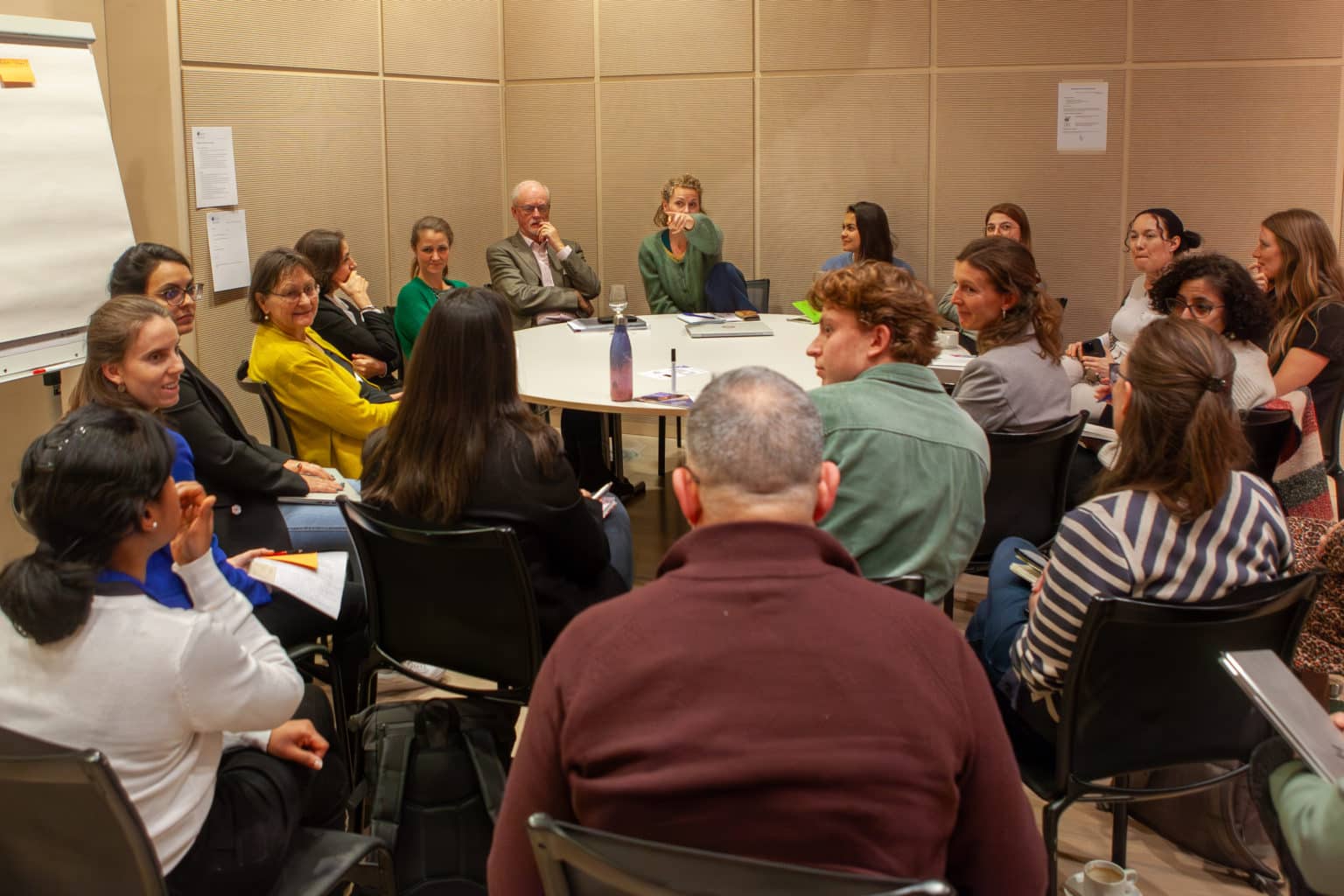
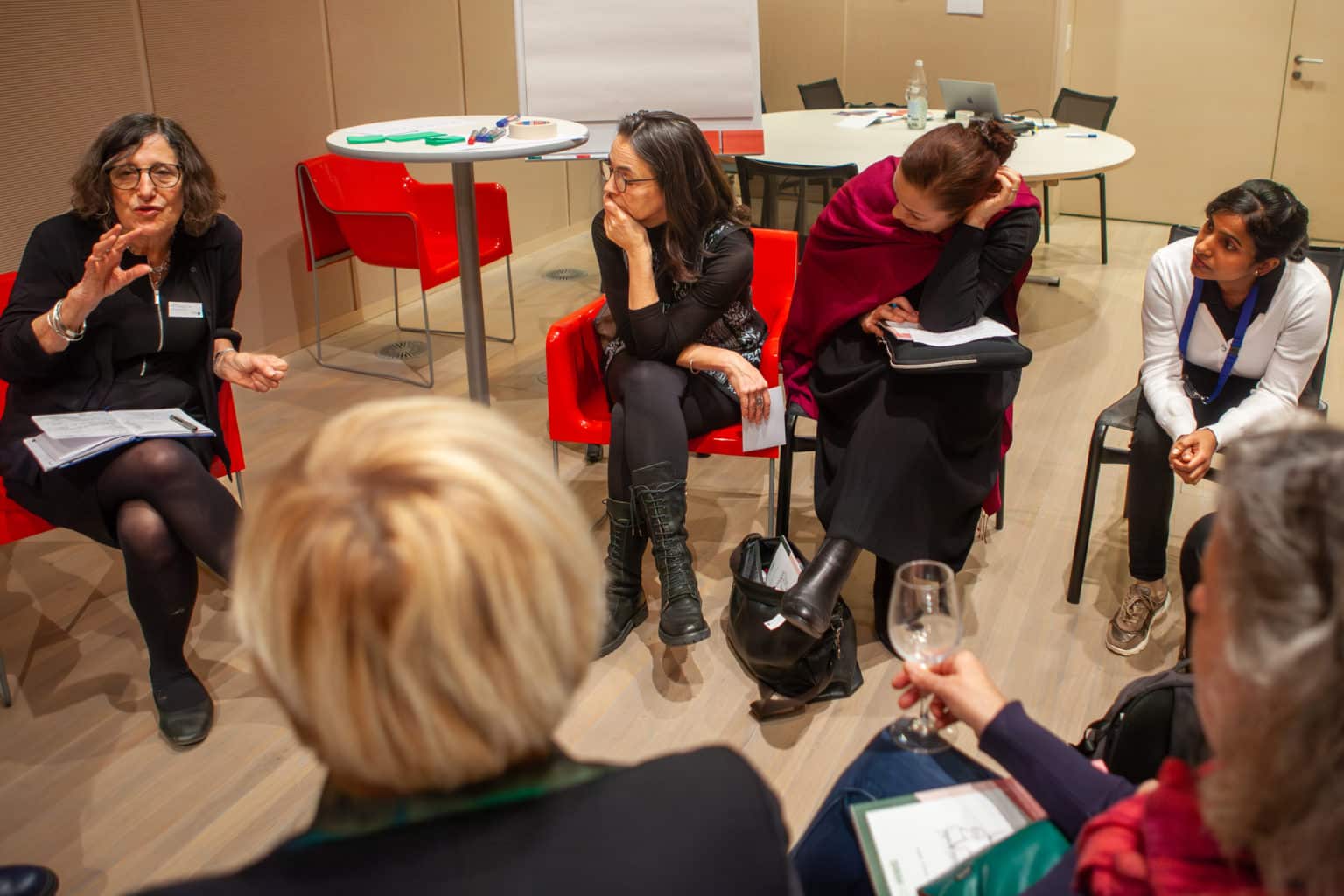
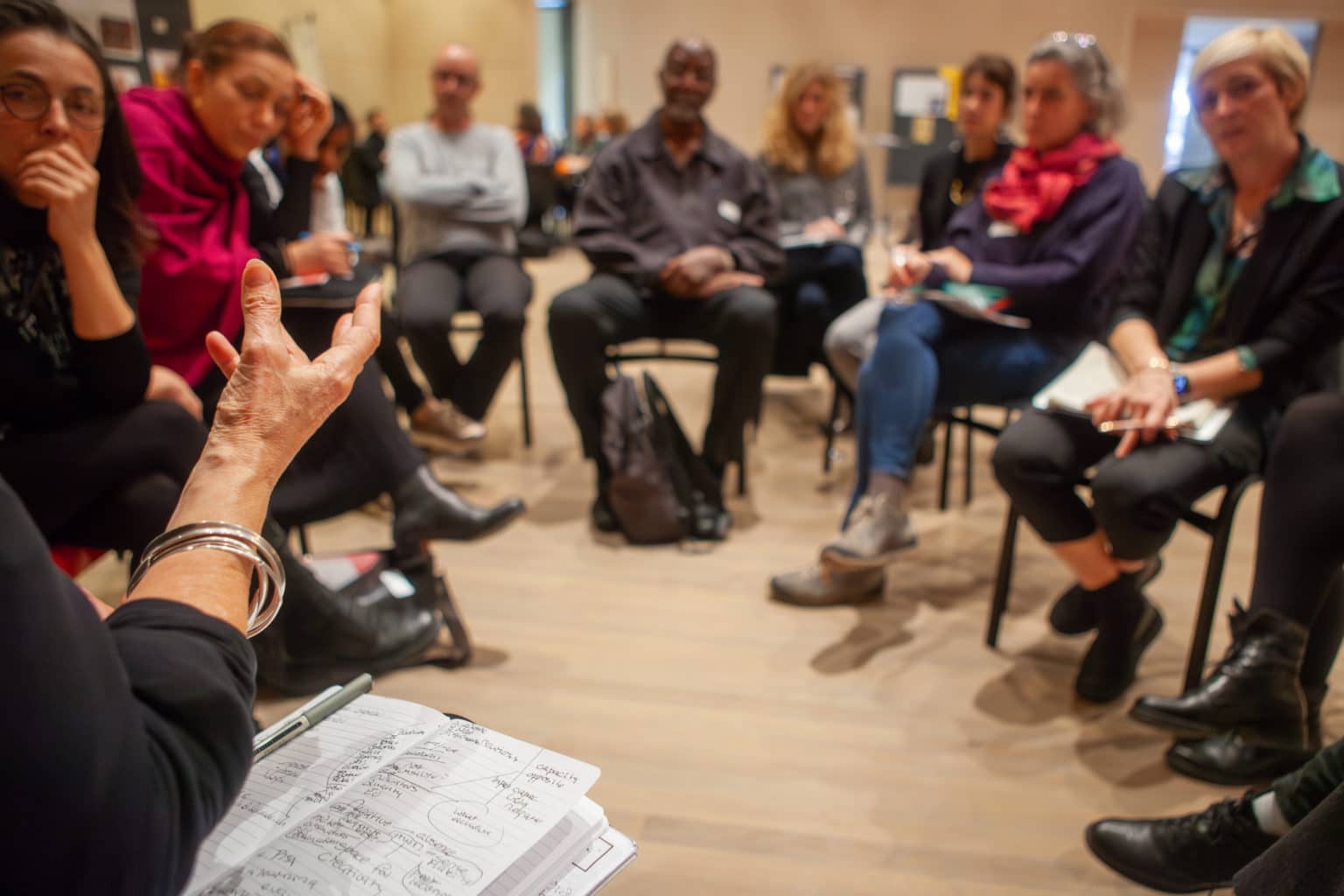
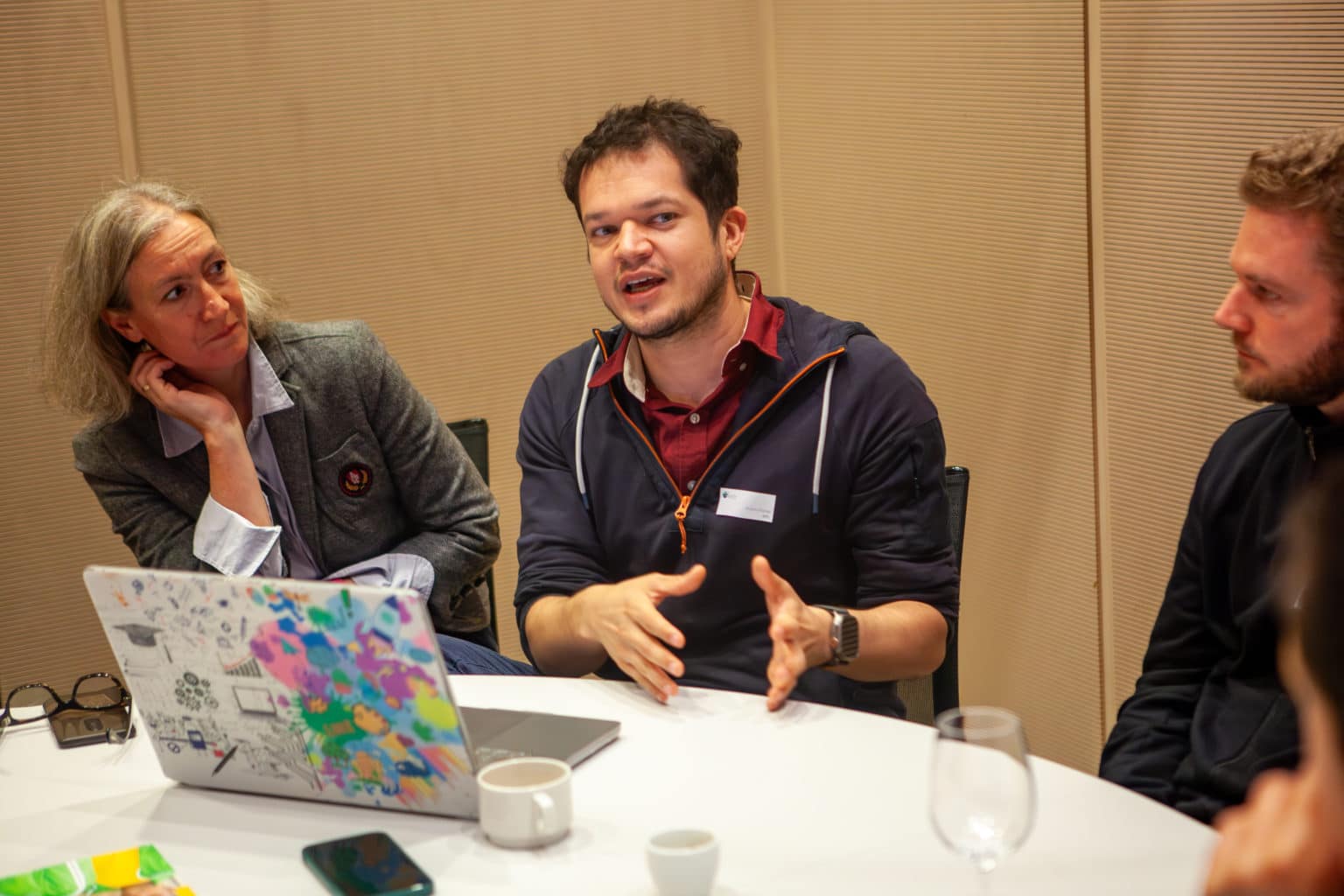
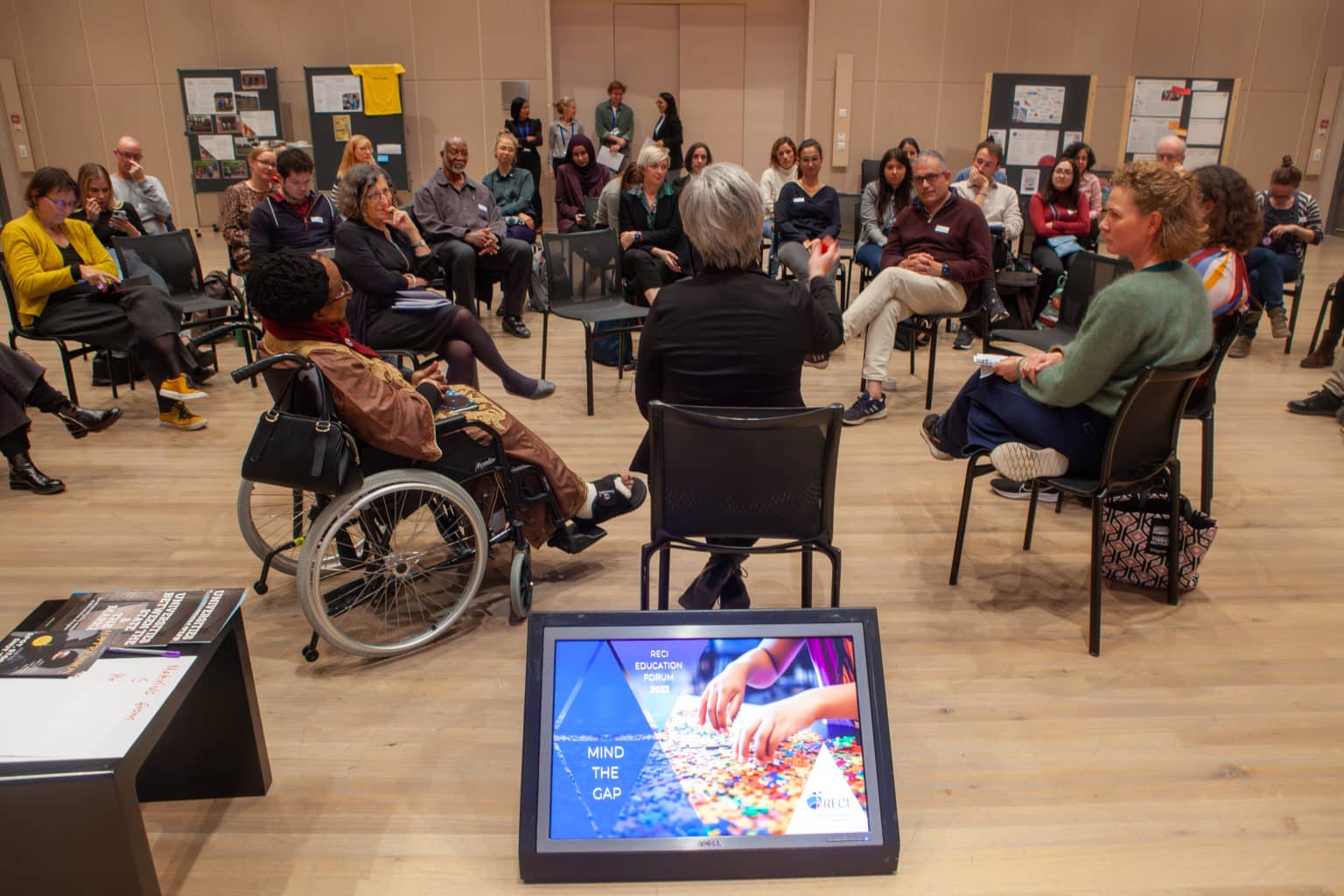
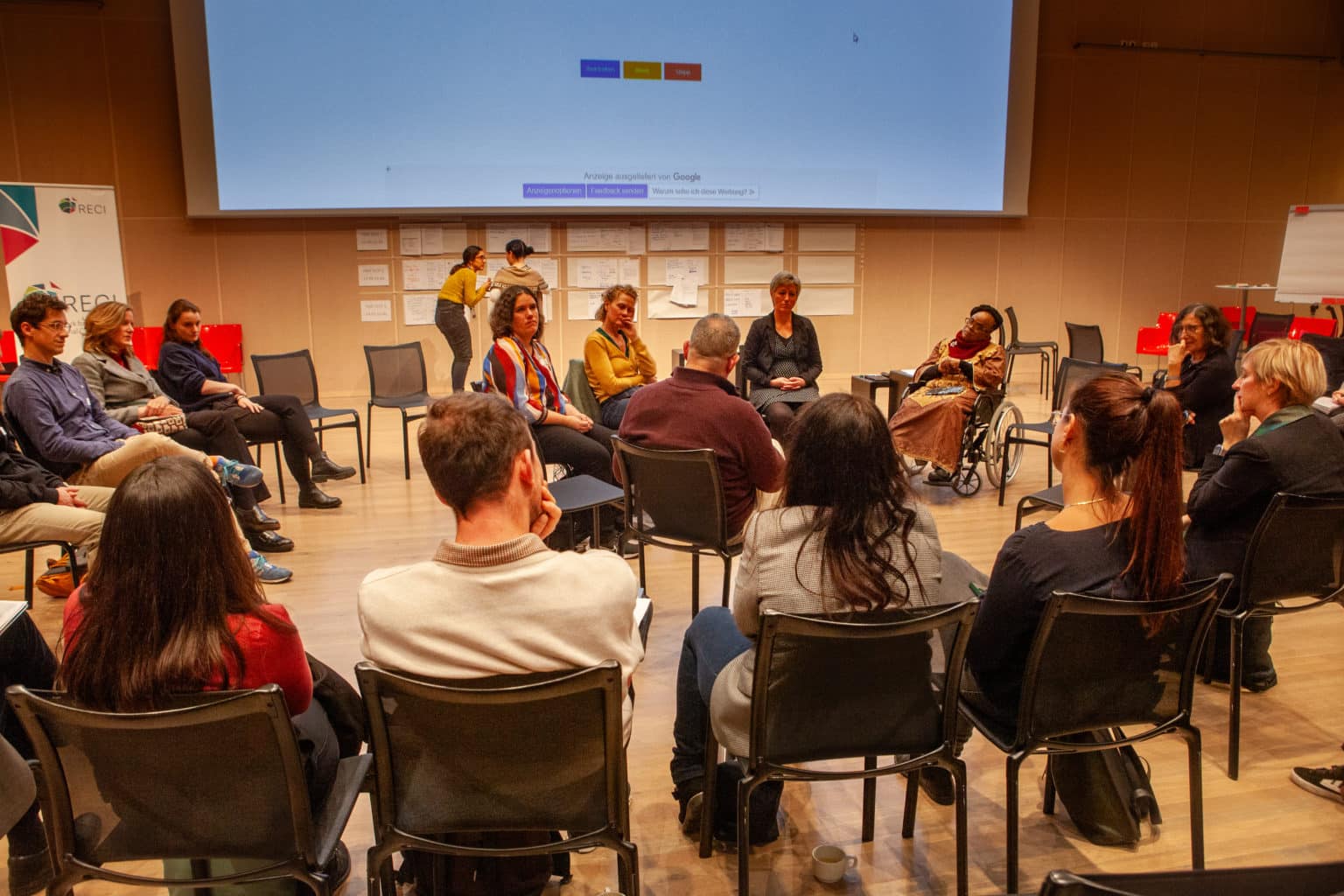
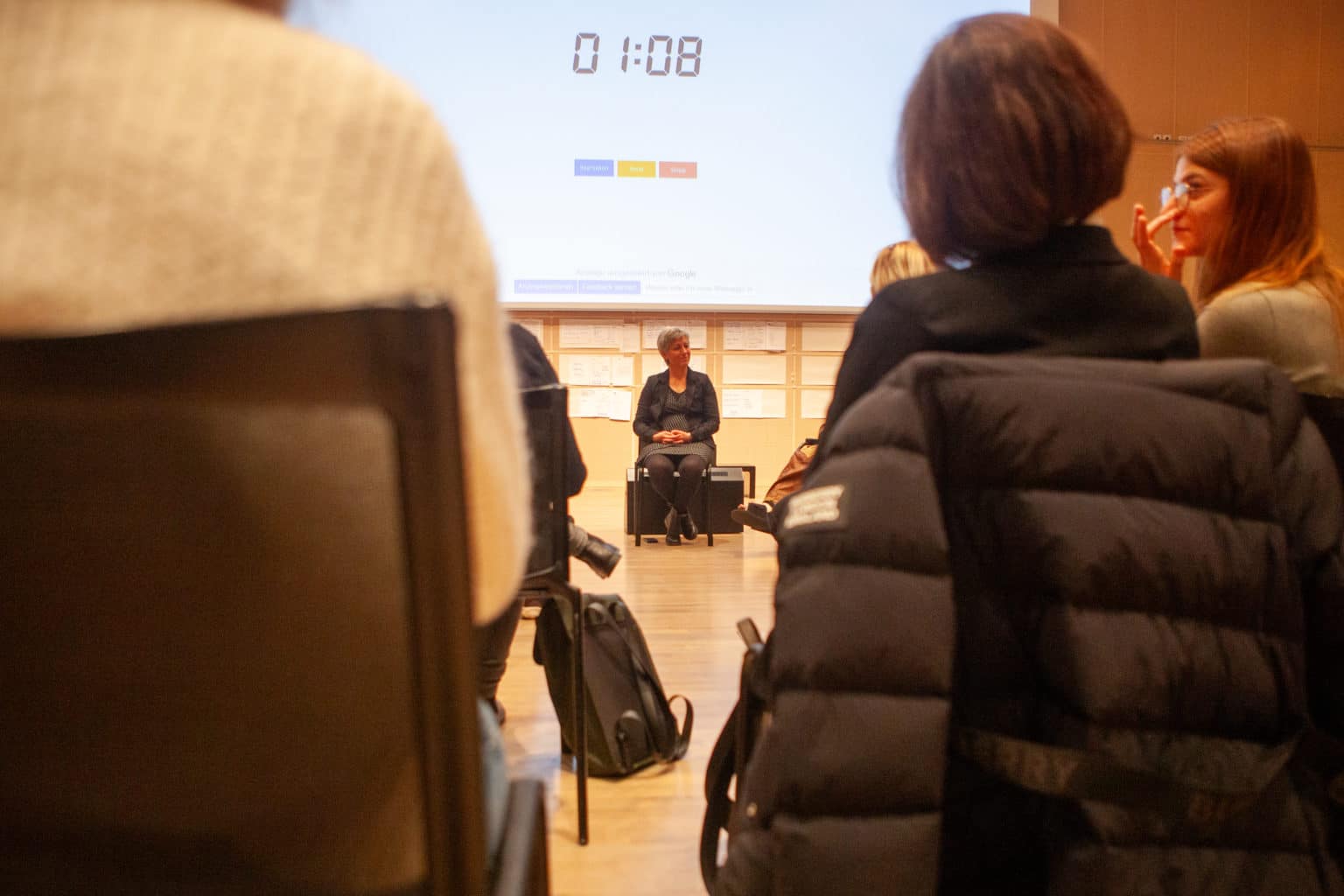
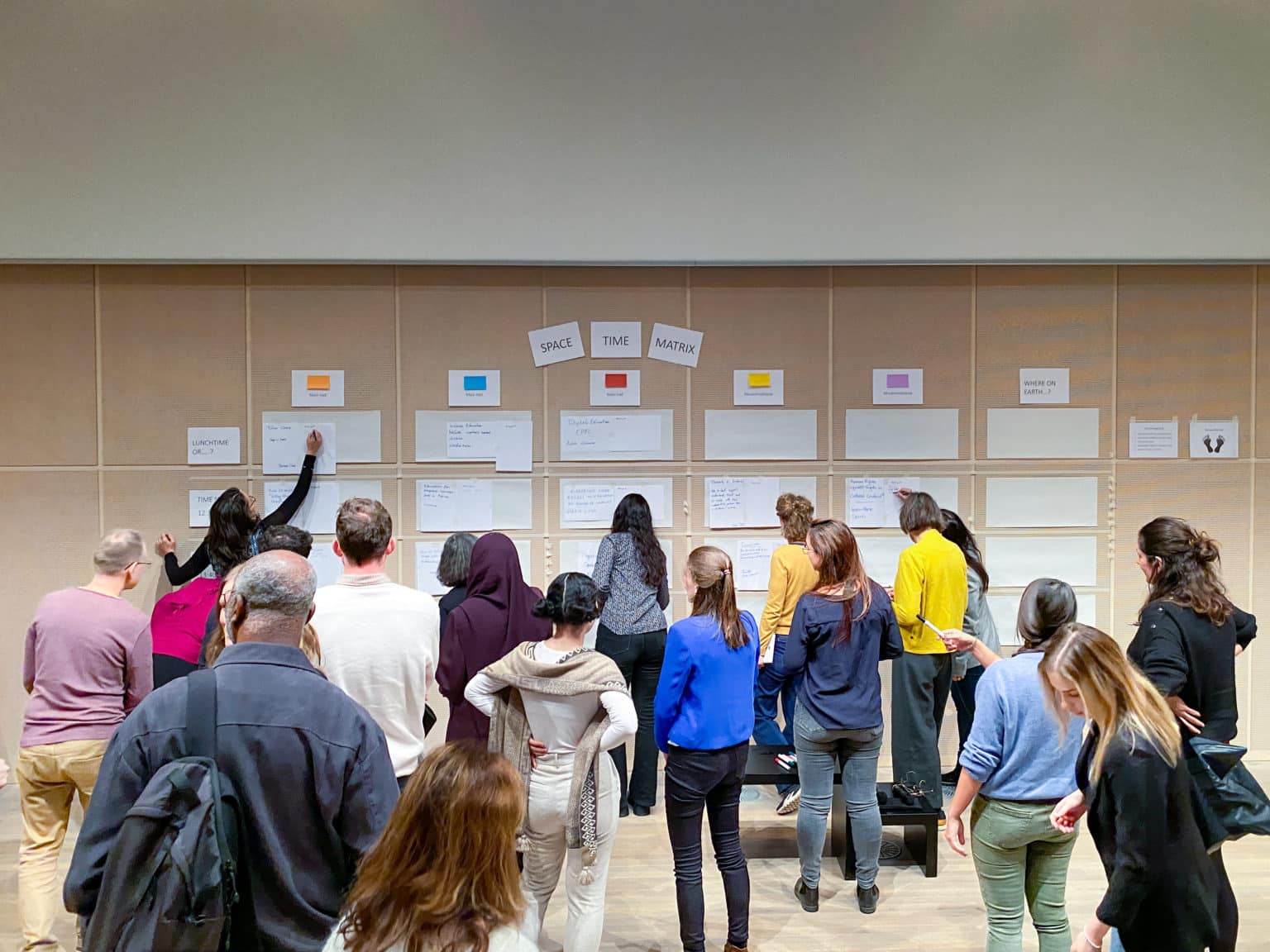

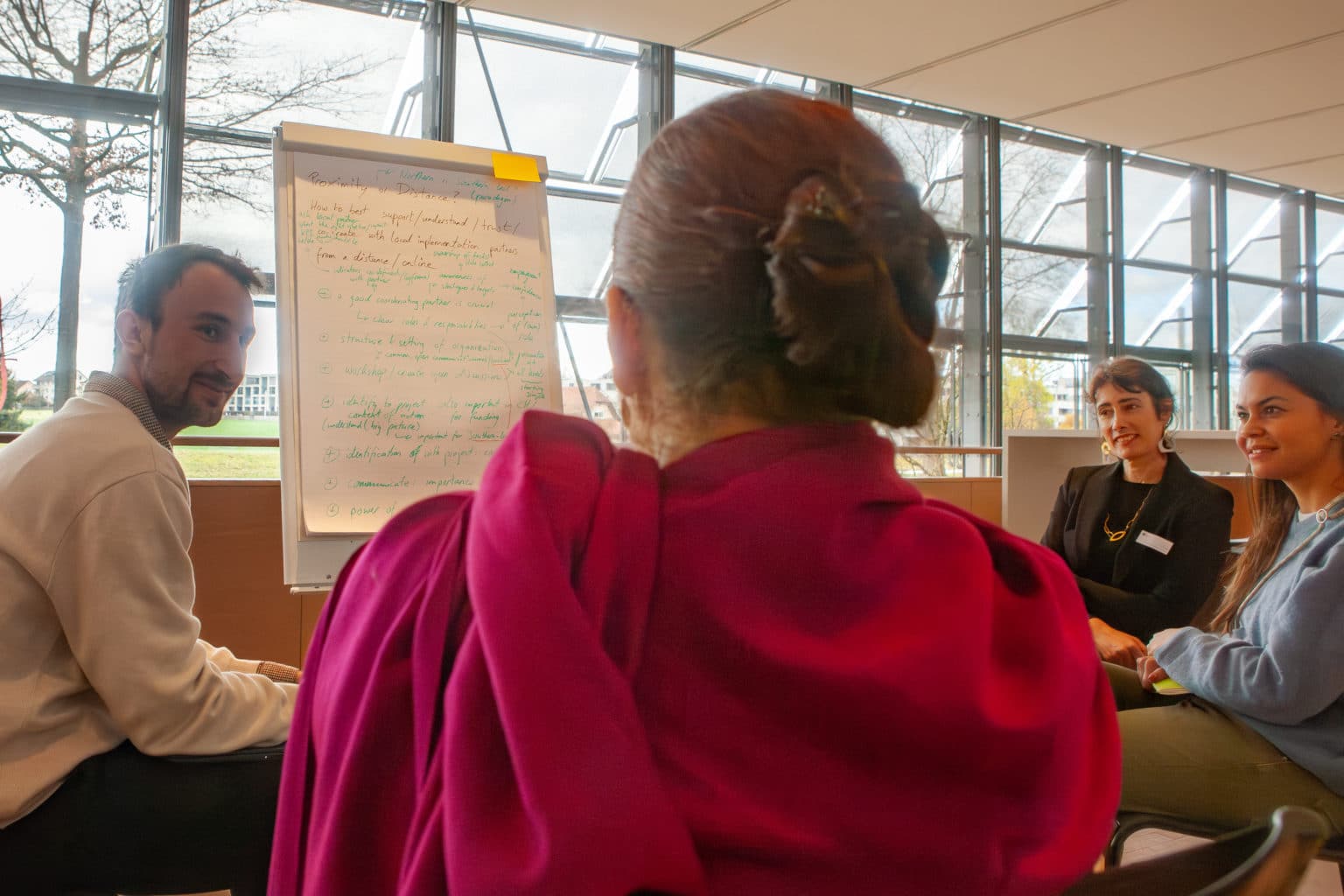
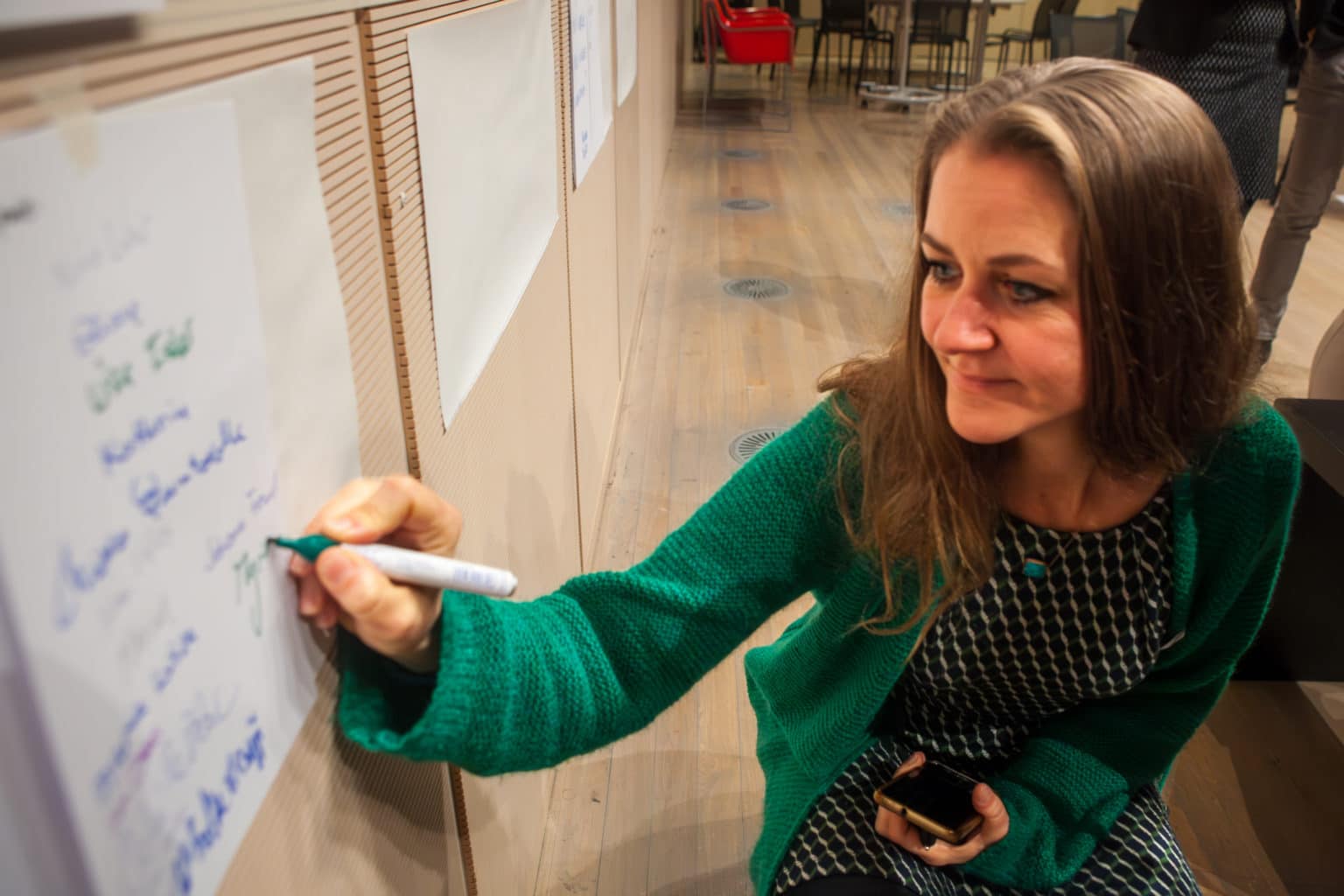

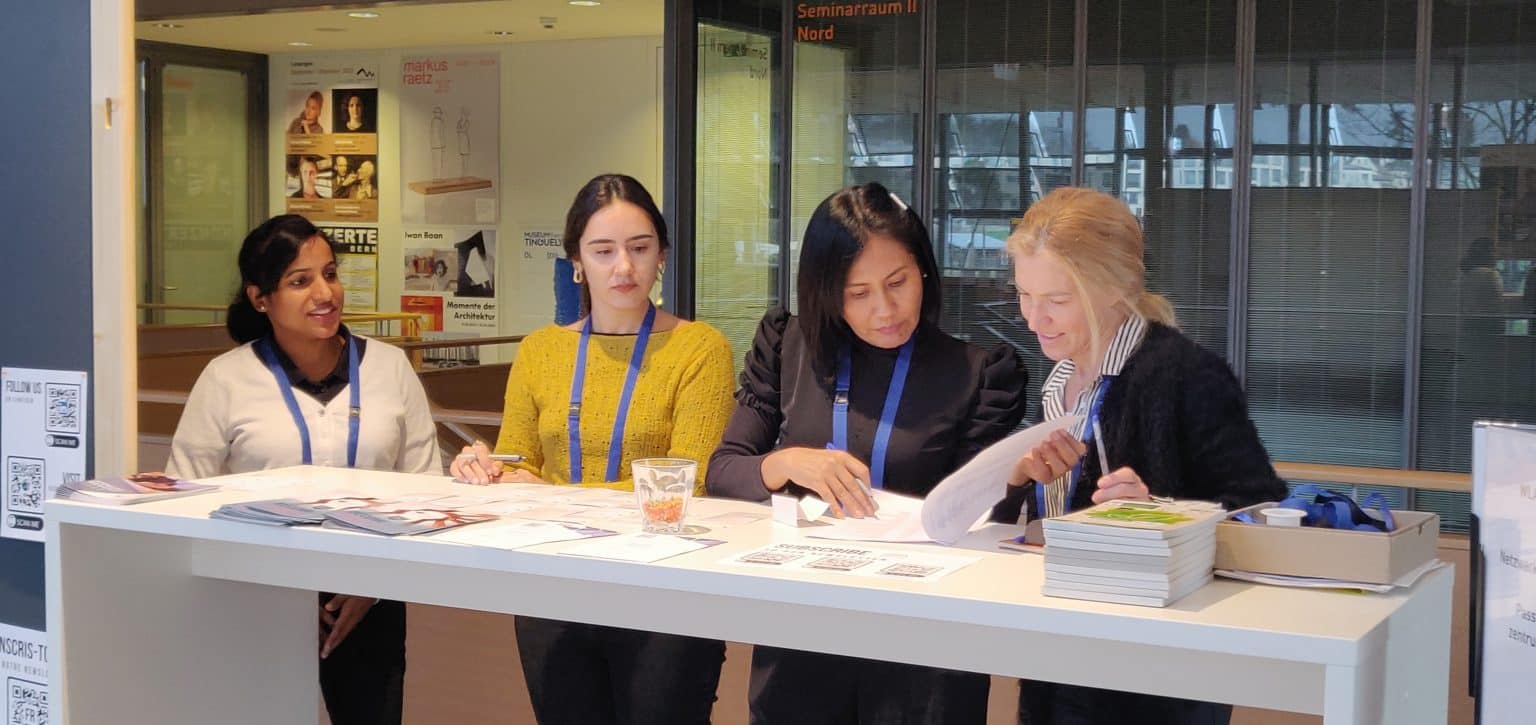
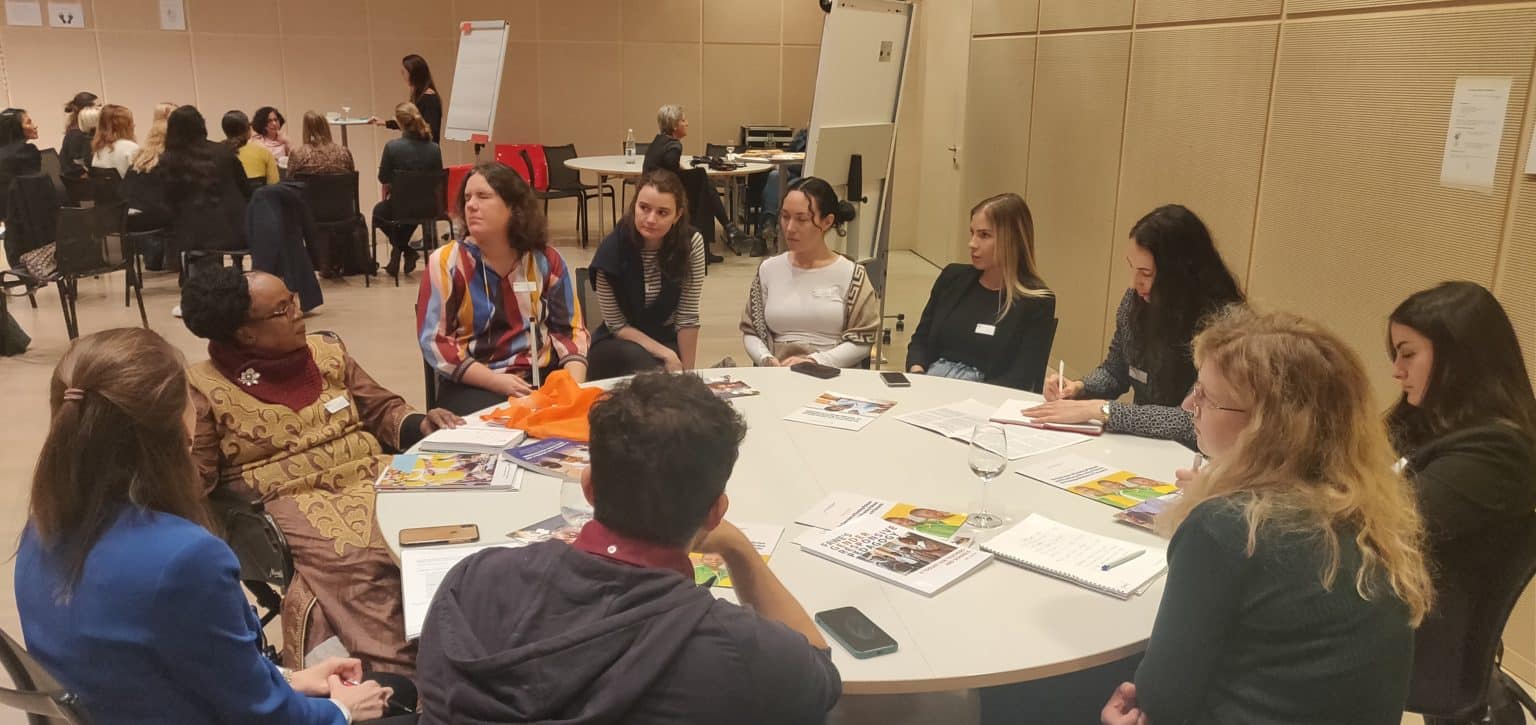
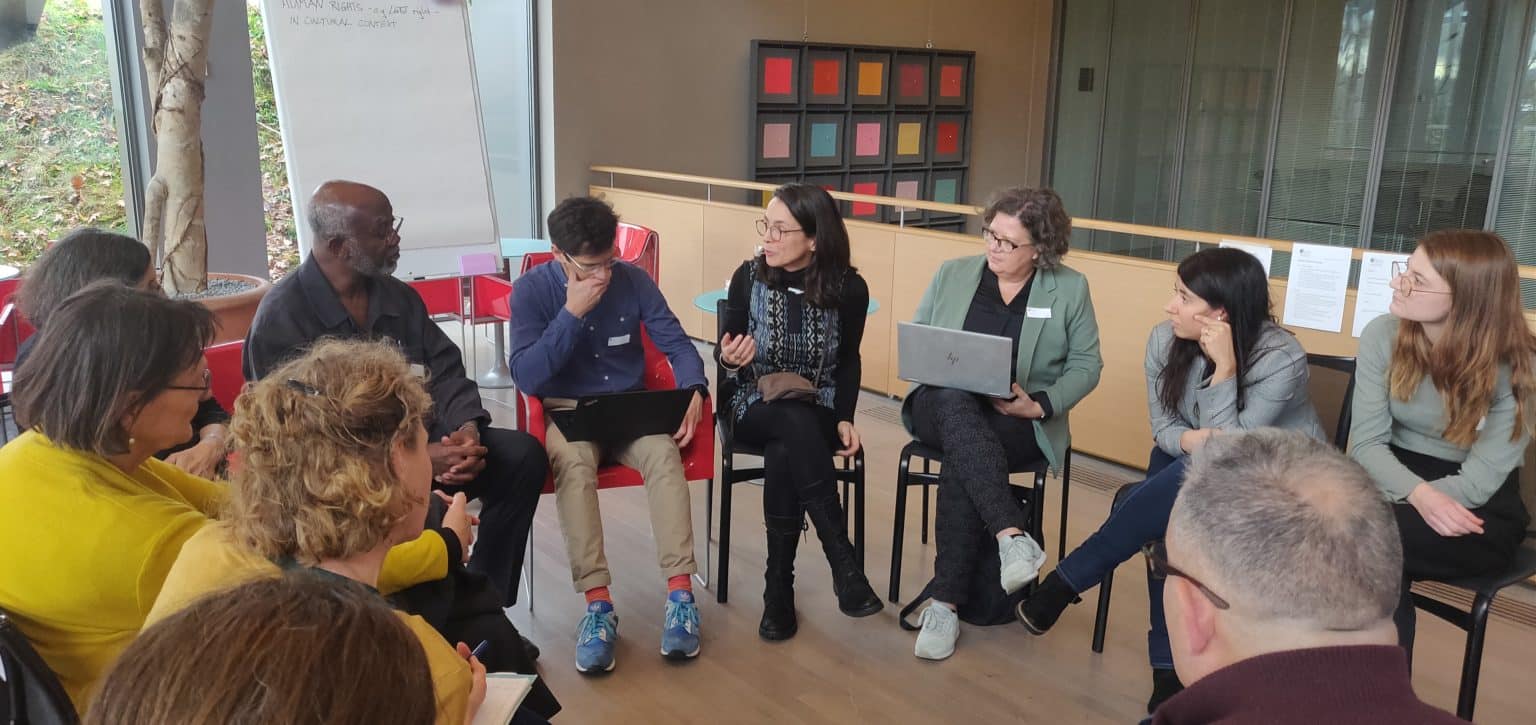
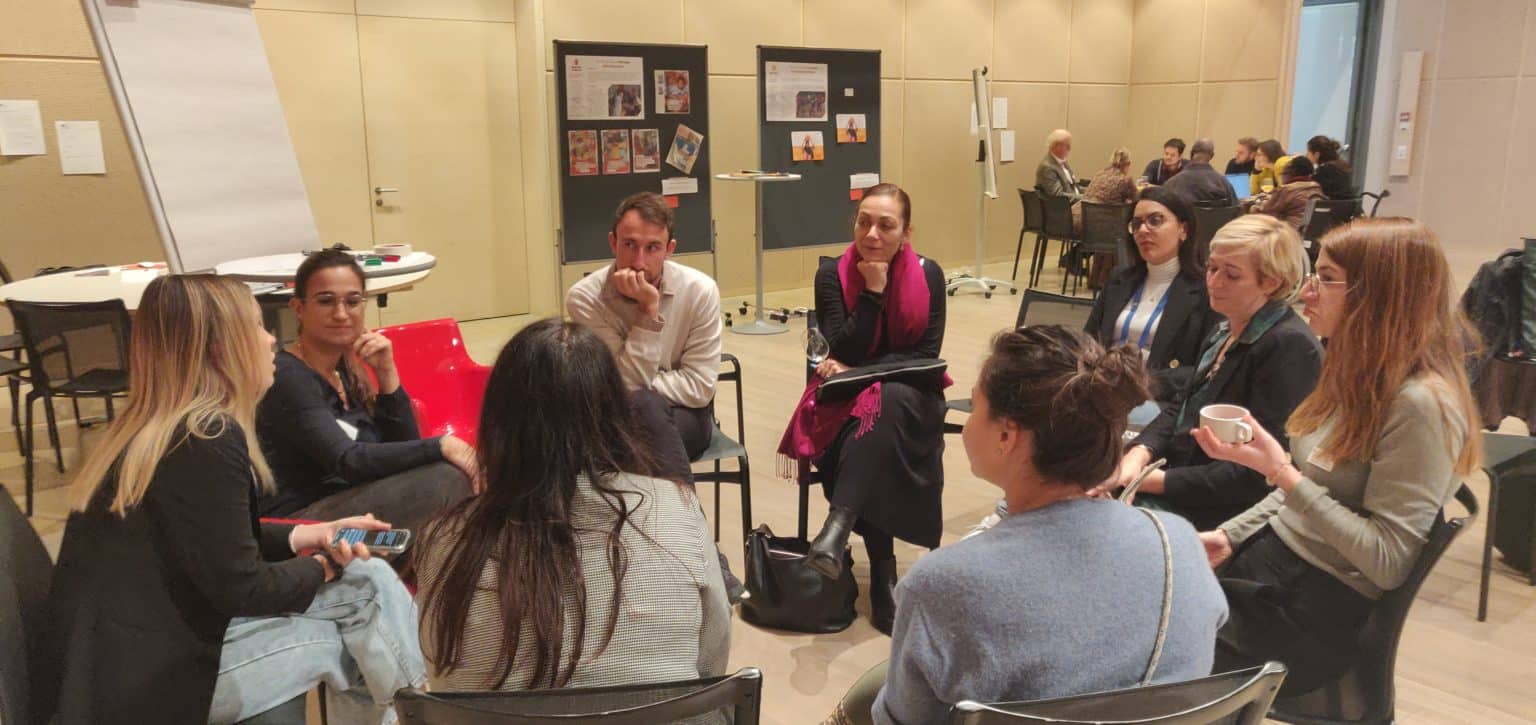
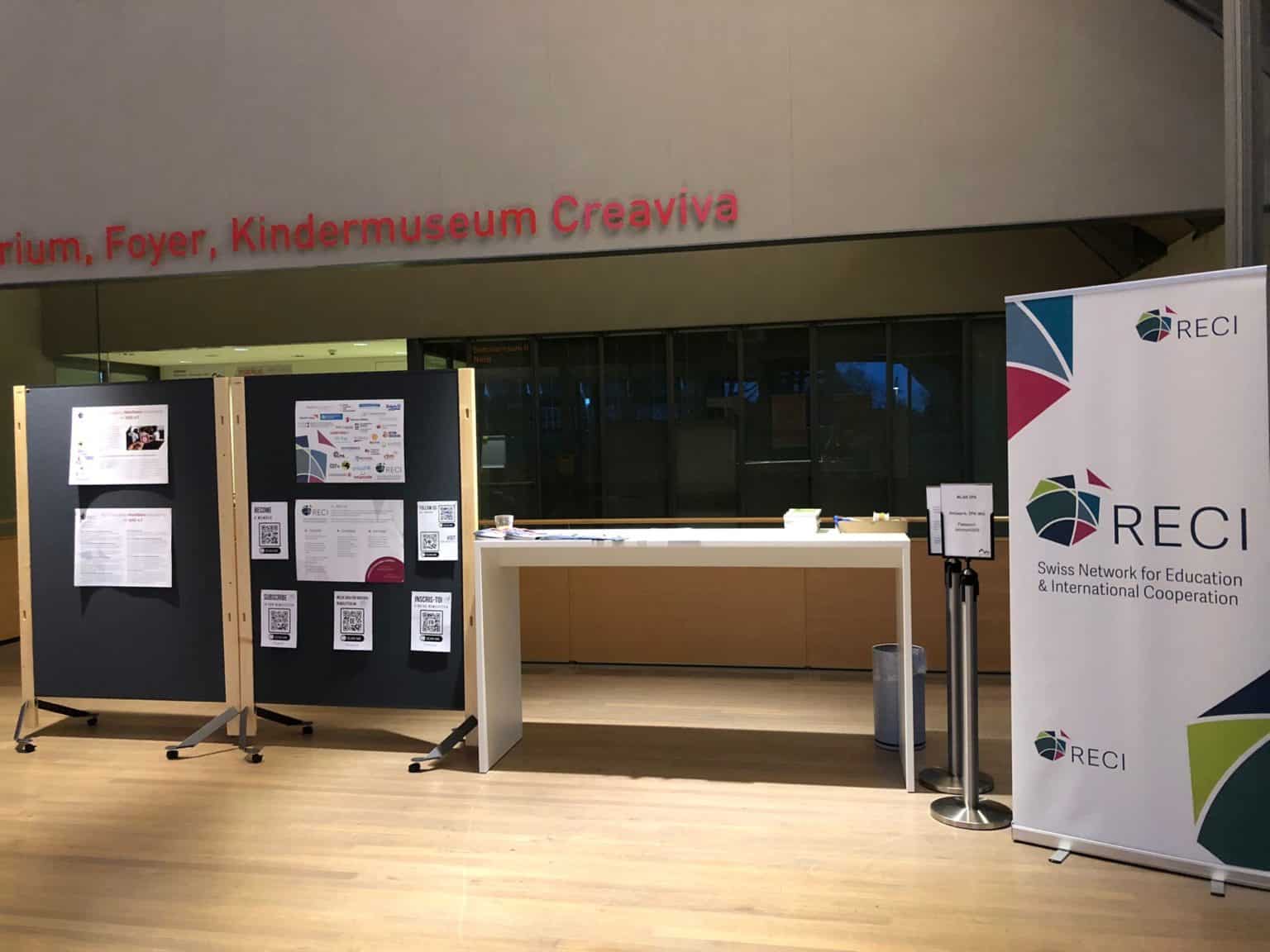
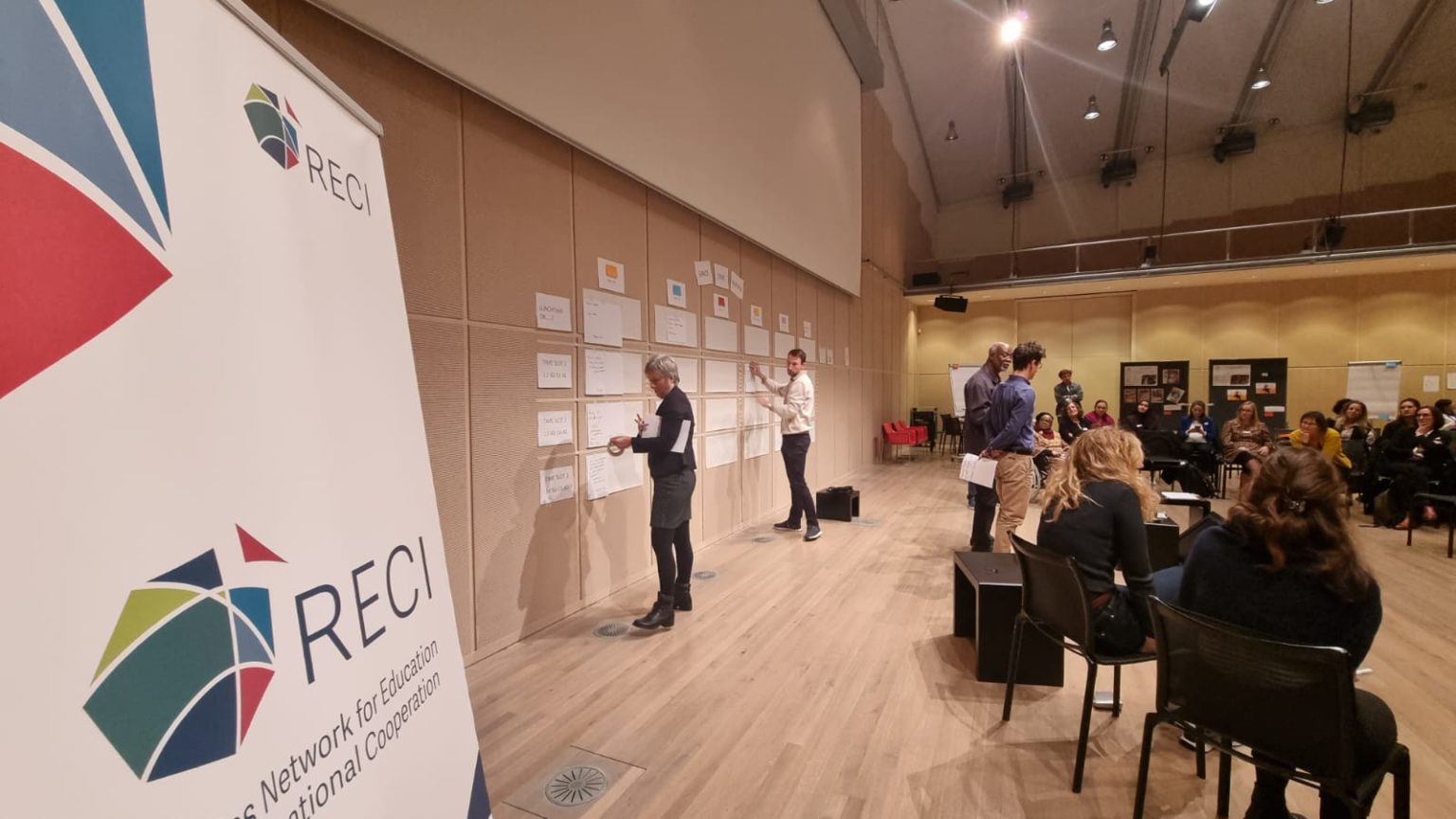
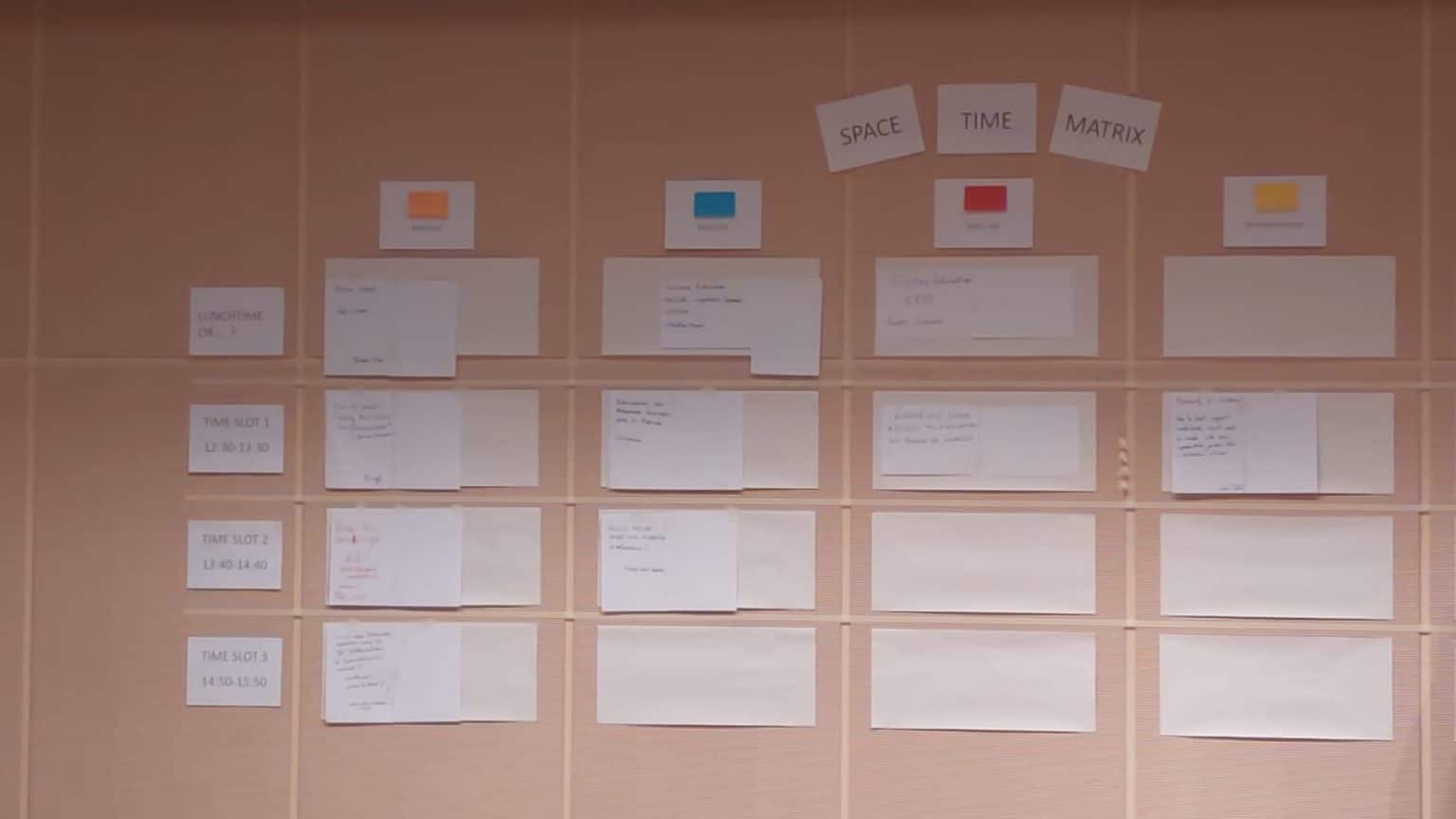
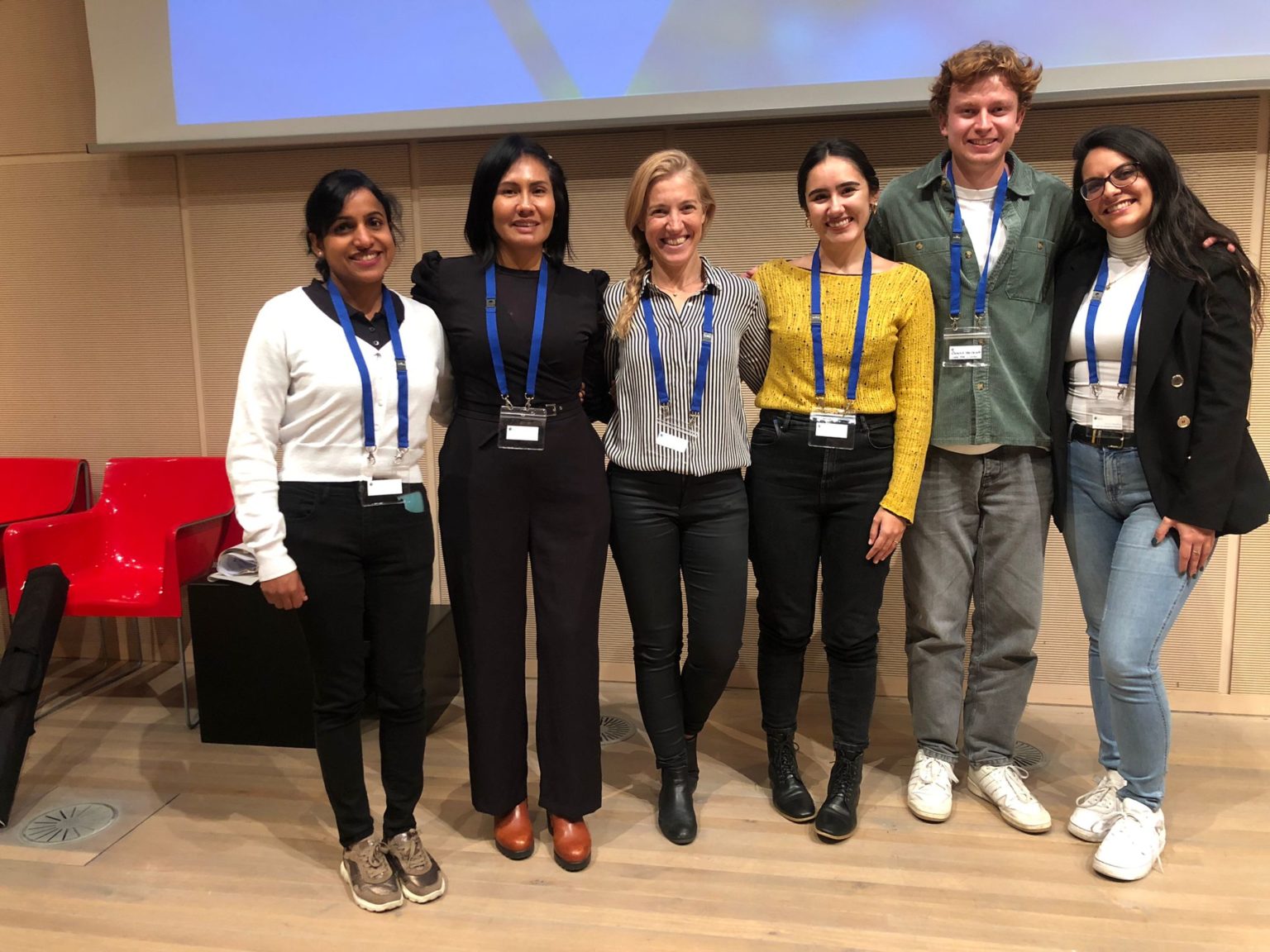
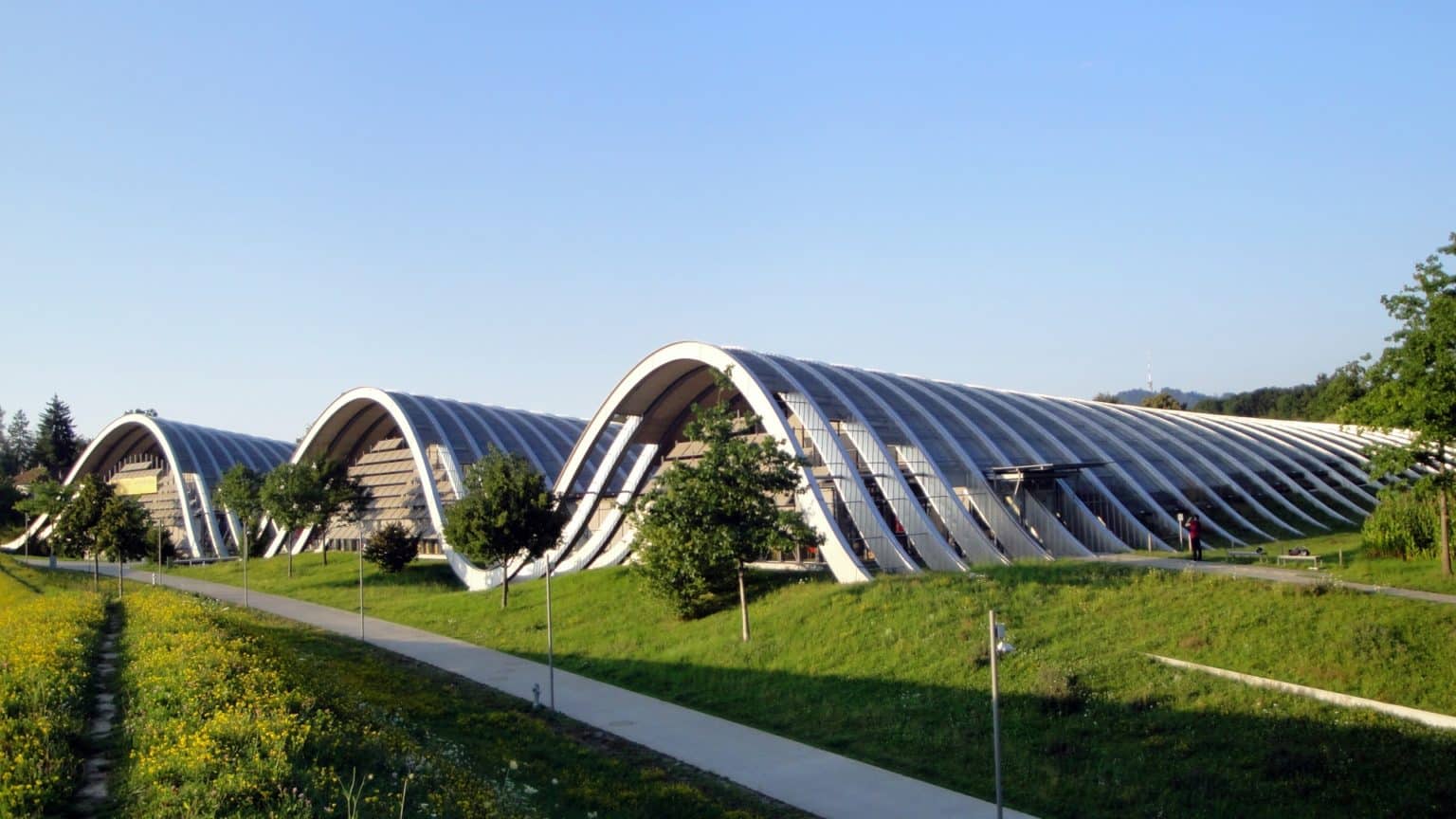
Marketplace

